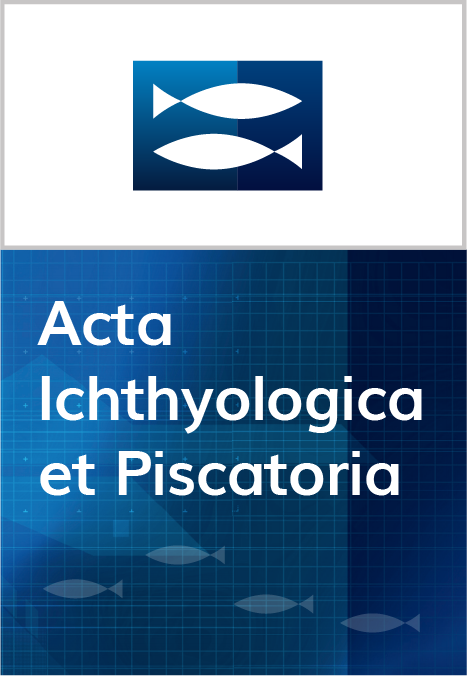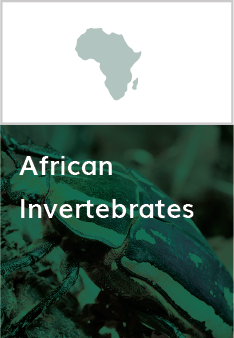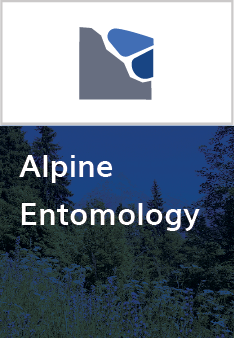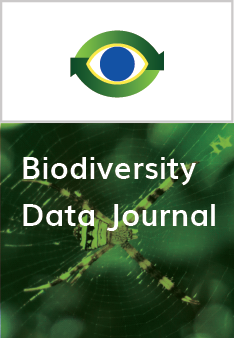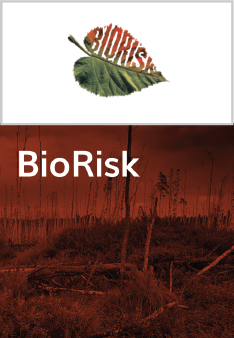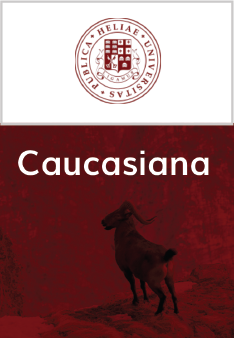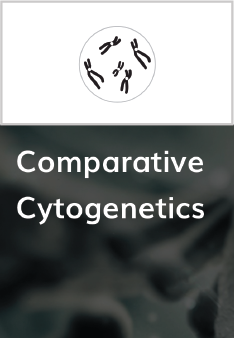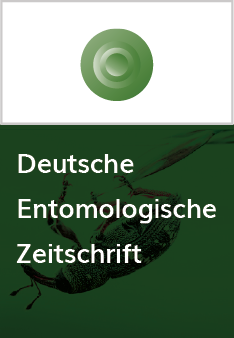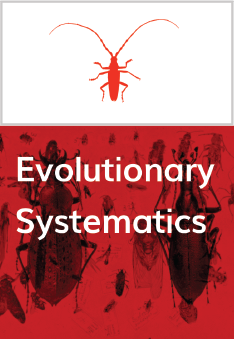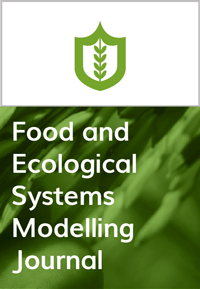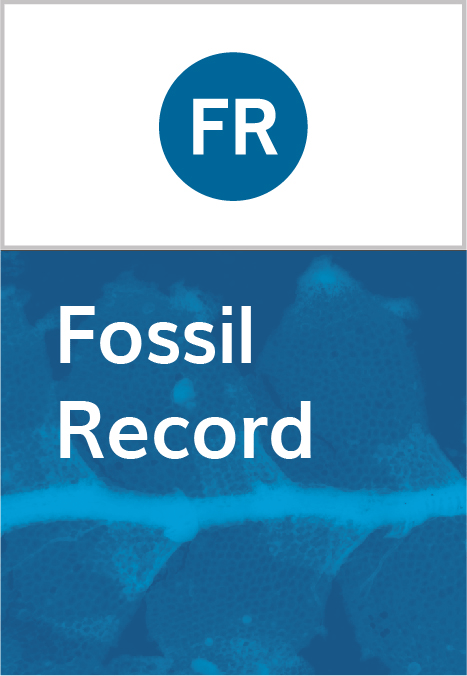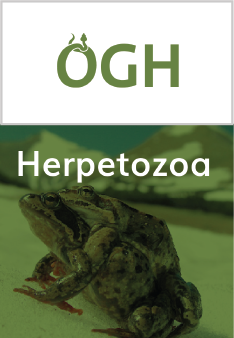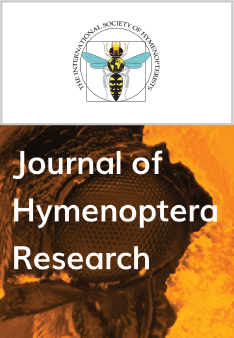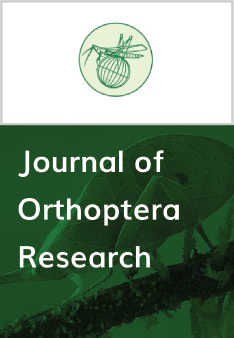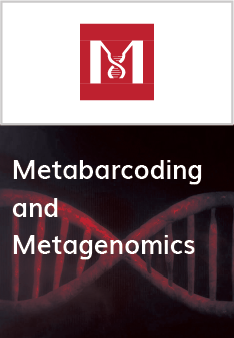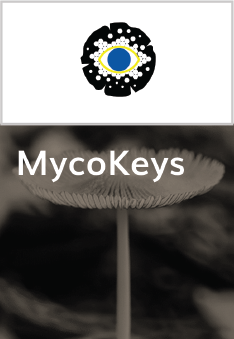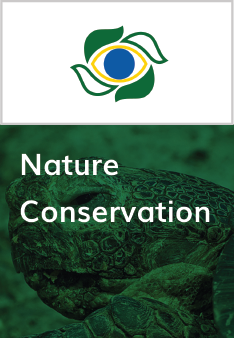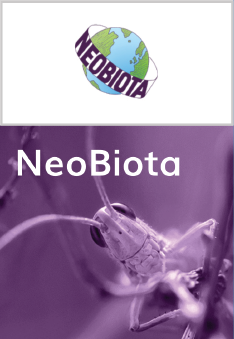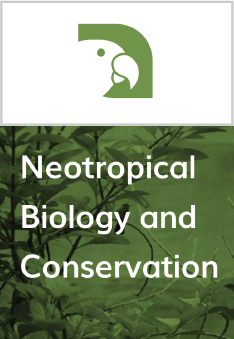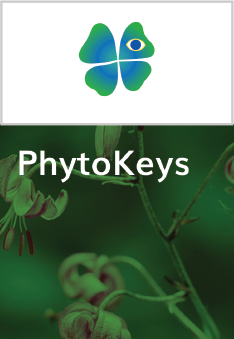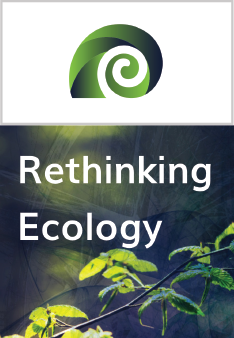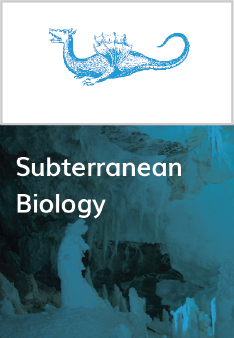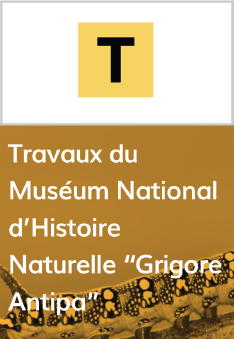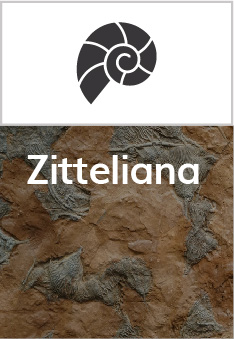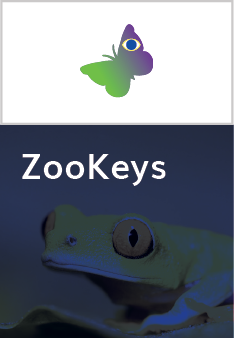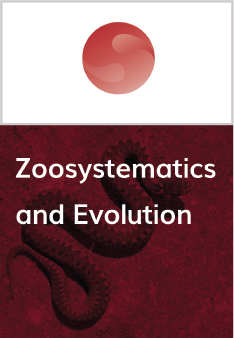Browse Journals
JOURNALS
ACTA ICHTHYOLOGICA ET PISCATORIA (AIeP) is an international, peer-reviewed scientific journal that publishes articles based on original experimental data or experimental methods, or new analyses of already existing data, in any aspect of ichthyology and fisheries (fin-fish only).
ACTA ICHTHYOLOGICA ET PISCATORIA (AIeP) is an international, peer-reviewed scientific journal that publishes articles based on original experimental data or experimental methods, or new analyses of already existing data, in any aspect of ichthyology and fisheries (fin-fish only).
Q3: Zoology
 , AGORA, AGRICOLA, AGRIS, Altmetric, ASCI, ASFA-FAO, ASOS Indeks, Baidu Scholar, BASE, British Library, Cabell's Directory, CABI, ChronosHub, CNKI, CrossRef, Dimensions, EBSCO Essentials, EBSCOhost, eLibrary, EZB, FreeFullPDF, GALE Academic OneFile, Genamics JournalSeek, Google Scholar, iDiscover (University of Cambridge), Index Copernicus, JournalGuide, Journals for Free (J4F), JournalTOCs, JURN, Lens, LetPub, Library of Congress, LIVIVO, Mendeley, MIAR, Microsoft Academic, Mir@bel, MyScienceWork, NAVER, Norwegian Register, OpenAIRE, OpenAlex, OpenBioDiv, POL-Index, ProQuest Central, ProQuest (Natural Science Collection), PubAg, QOAM, Research4Life, Research Gate, ROAD, Scibey, ScienceOpen, Scilit, Scite, Semantic Scholar, Sherpa/Romeo, SIBiLS, SJR Scimago, SOLO (Search Oxford Libraries Online), Swisscovery, Transpose, Unpaywall, Vifabio, Web of Science Researcher Profile (ex-Publons), WorldCat, ZDB
, AGORA, AGRICOLA, AGRIS, Altmetric, ASCI, ASFA-FAO, ASOS Indeks, Baidu Scholar, BASE, British Library, Cabell's Directory, CABI, ChronosHub, CNKI, CrossRef, Dimensions, EBSCO Essentials, EBSCOhost, eLibrary, EZB, FreeFullPDF, GALE Academic OneFile, Genamics JournalSeek, Google Scholar, iDiscover (University of Cambridge), Index Copernicus, JournalGuide, Journals for Free (J4F), JournalTOCs, JURN, Lens, LetPub, Library of Congress, LIVIVO, Mendeley, MIAR, Microsoft Academic, Mir@bel, MyScienceWork, NAVER, Norwegian Register, OpenAIRE, OpenAlex, OpenBioDiv, POL-Index, ProQuest Central, ProQuest (Natural Science Collection), PubAg, QOAM, Research4Life, Research Gate, ROAD, Scibey, ScienceOpen, Scilit, Scite, Semantic Scholar, Sherpa/Romeo, SIBiLS, SJR Scimago, SOLO (Search Oxford Libraries Online), Swisscovery, Transpose, Unpaywall, Vifabio, Web of Science Researcher Profile (ex-Publons), WorldCat, ZDBPublished jointly by the KwaZulu-Natal Museum and Pensoft, the journal covers the taxonomy, systematics, biology, biogeography, ecology, conservation and palaeontology of Afrotropical invertebrates.
African Invertebrates is an international peer-reviewed journal that covers the taxonomy, systematics, biology, biogeography, ecology, conservation and palaeontology of Afrotropical invertebrates, whether terrestrial, freshwater or marine, published jointly by the Council of the KwaZulu-Natal Museum and Pensoft Publishers. A printed version of the journal is produced twice a year. All contributions are published in English (British Standard), with an option to add an abstract in any other language that uses Latin or Cyrillic alphabet. When preparing manuscripts, authors are encouraged to make use of extensive holdings of the KwaZulu-Natal Museum and other South African museums and collections, and to deposit holotypes (paratypes) and voucher specimens in recognised South African institutions.
Q4: Paleontology
Q4: Zoology
Q4: Animal Science and Zoology
Q4: Paleontology
Q4: Ecology, Evolution, Behavior and Systematics
 , AGORA, AGRICOLA, Altmetric, ASCI, ASOS Indeks, Baidu Scholar, BASE, British Library, Cabell's Directory, CABI, ChronosHub, CNKI, CrossRef, Dimensions, EBSCO Essentials, EBSCOhost, eLibrary, EZB, FreeFullPDF, GALE Academic OneFile, Genamics JournalSeek, GoOA, Google Scholar, iDiscover (University of Cambridge), Index Copernicus, J-Gate, JournalGuide, Journals for Free (J4F), JournalTOCs, JURN, Keepers, Lens, LetPub, Library of Congress, LIVIVO, Mendeley, MIAR, Microsoft Academic, Mir@bel, NAVER, NAVIGA, Norwegian Register, OpenAIRE, OpenAlex, OpenBiodiv, OpenBioDiv, OpenCitations, Ou-Publier?, Paperity, POL-Index, ProQuest, ProQuest Central, ProQuest Central Essentials, ProQuest Central Student, ProQuest (Natural Science Collection), ProQuest One Academic, PubAg, QOAM, ReadCube, Research4Life, ResearchBib, ROAD, Sabinet, Scibey, Science Data Bank, ScienceOpen, Scilit, Scite, SciTech Premium Collection, Semantic Scholar, Sherpa/Romeo, SIBiLS, SJR Scimago, SOLO (Search Oxford Libraries Online), Swisscovery, Transpose, UDL-EDGE, Ulrichsweb™, Unpaywall, Vifabio, WanFang Data, Web of Science Researcher Profile (ex-Publons), WorldCat, X-MOL, ZDB, Zetoc
, AGORA, AGRICOLA, Altmetric, ASCI, ASOS Indeks, Baidu Scholar, BASE, British Library, Cabell's Directory, CABI, ChronosHub, CNKI, CrossRef, Dimensions, EBSCO Essentials, EBSCOhost, eLibrary, EZB, FreeFullPDF, GALE Academic OneFile, Genamics JournalSeek, GoOA, Google Scholar, iDiscover (University of Cambridge), Index Copernicus, J-Gate, JournalGuide, Journals for Free (J4F), JournalTOCs, JURN, Keepers, Lens, LetPub, Library of Congress, LIVIVO, Mendeley, MIAR, Microsoft Academic, Mir@bel, NAVER, NAVIGA, Norwegian Register, OpenAIRE, OpenAlex, OpenBiodiv, OpenBioDiv, OpenCitations, Ou-Publier?, Paperity, POL-Index, ProQuest, ProQuest Central, ProQuest Central Essentials, ProQuest Central Student, ProQuest (Natural Science Collection), ProQuest One Academic, PubAg, QOAM, ReadCube, Research4Life, ResearchBib, ROAD, Sabinet, Scibey, Science Data Bank, ScienceOpen, Scilit, Scite, SciTech Premium Collection, Semantic Scholar, Sherpa/Romeo, SIBiLS, SJR Scimago, SOLO (Search Oxford Libraries Online), Swisscovery, Transpose, UDL-EDGE, Ulrichsweb™, Unpaywall, Vifabio, WanFang Data, Web of Science Researcher Profile (ex-Publons), WorldCat, X-MOL, ZDB, ZetocFormerly the “Journal of the Swiss Entomological Society”, the journal focuses on insects and occasionally other arthropods from mountainous regions from around the world.
Alpine Entomology
Alpine Entomology publishes original research articles, reviews and short communications on insects and other arthropods from mountainous regions all over the world. Published articles may cover a diversity of topics, including taxonomy, phylogenetics, behavior, ecology, conservation and biogeography, provided that article content enhances current understanding of entomological fauna in mountainous areas. Studies using altitudinal gradients to investigate community structure and ecosystem processes anywhere across the globe are welcome. Upon request, larger monographs or special issues may also be published.
Alpine Entomology, in print since 2017, is the journal of the Swiss Entomological Society (formerly the “Journal of the Swiss Entomological Society”, published from 1862 to 2016). Alpine Entomology is an open access journal, available both online and in print. The journal primarily publishes papers in English; however, manuscripts in German, French and Italian are also welcome, provided that they contain an English translation of the abstract. Members of the Swiss Entomological Society receive a printed copy of the year’s volume.
You can find previous volumes of the journal here.
Q3: Agricultural and Biological Sciences: Insect Science
Q3: Animal Science and Zoology
Q3: Environmental Science: Ecology
 , AGORA, AGRICOLA, AGRIS, Altmetric, ASCI, ASOS Indeks, Baidu Scholar, BASE, British Library, Cabell's Directory, CABI, ChronosHub, CNKI, CrossRef, Dimensions, EBSCO Essentials, EBSCOhost, eLibrary, EZB, FreeFullPDF, GALE Academic OneFile, GoOA, Google Scholar, iDiscover (University of Cambridge), Index Copernicus, J-Gate, JournalTOCs, JURN, Keepers, Lens, LetPub, Library of Congress, LIVIVO, Mendeley, MIAR, Microsoft Academic, Mir@bel, NAVER, NAVIGA, Norwegian Register, OpenAIRE, OpenAlex, OpenBiodiv, OpenBioDiv, OpenCitations, Paperity, POL-Index, ProQuest, ProQuest Central, ProQuest (Natural Science Collection), QOAM, ReadCube, Research4Life, ResearchBib, ROAD, Scibey, Science Data Bank, ScienceOpen, Scilit, Scite, Semantic Scholar, Sherpa/Romeo, SIBiLS, SJR Scimago, SOLO (Search Oxford Libraries Online), Swisscovery, Transpose, Ulrichsweb™, Unpaywall, Vifabio, WanFang Data, Web of Science Researcher Profile (ex-Publons), WorldCat, ZDB
, AGORA, AGRICOLA, AGRIS, Altmetric, ASCI, ASOS Indeks, Baidu Scholar, BASE, British Library, Cabell's Directory, CABI, ChronosHub, CNKI, CrossRef, Dimensions, EBSCO Essentials, EBSCOhost, eLibrary, EZB, FreeFullPDF, GALE Academic OneFile, GoOA, Google Scholar, iDiscover (University of Cambridge), Index Copernicus, J-Gate, JournalTOCs, JURN, Keepers, Lens, LetPub, Library of Congress, LIVIVO, Mendeley, MIAR, Microsoft Academic, Mir@bel, NAVER, NAVIGA, Norwegian Register, OpenAIRE, OpenAlex, OpenBiodiv, OpenBioDiv, OpenCitations, Paperity, POL-Index, ProQuest, ProQuest Central, ProQuest (Natural Science Collection), QOAM, ReadCube, Research4Life, ResearchBib, ROAD, Scibey, Science Data Bank, ScienceOpen, Scilit, Scite, Semantic Scholar, Sherpa/Romeo, SIBiLS, SJR Scimago, SOLO (Search Oxford Libraries Online), Swisscovery, Transpose, Ulrichsweb™, Unpaywall, Vifabio, WanFang Data, Web of Science Researcher Profile (ex-Publons), WorldCat, ZDBDesigned to accelerate publishing, dissemination and sharing of biodiversity data, this journal is the first to offer integrated publication of narrative and data within the article content.
Biodiversity Data Journal (BDJ) is a community peer-reviewed, open access journal, designed to accelerate publishing, dissemination and sharing of biodiversity-related data of any kind. All structural elements of the articles – text, morphological descriptions, occurrences, data tables, etc. – are treated and stored as data.
The journal publishes papers in biodiversity science containing taxonomic, floristic/faunistic, morphological, genomic, phylogenetic, ecological or environmental data on any taxon of any geological age from any part of the world. BDJ aims at integrating data and narrative in the article content to the maximum extent possible. Supplementary data files that underpin graphs, hypotheses and results should also be published with the article or deposited in trusted open access data repositories. The journal provides rich biodiversity data import and export facilities through the ARPHA Writing Tool and Darwin Core Archives.
Q2: Ecology, Evolution, Behavior and Systematics
Q2: Agricultural and Biological Sciences
Q2: Animal Science and Zoology
Q2: Insect Science
Q2: Plant Science
 , AGORA, AGRICOLA, AGRIS, Altmetric, ASCI, ASOS Indeks, Baidu Scholar, BASE, British Library, Cabell's Directory, CABI, ChronosHub, CNKI, CrossRef, Dimensions, EBSCO Essentials, EBSCOhost, eLibrary, EZB, FreeFullPDF, GALE Academic OneFile, Genamics JournalSeek, GoOA, Google Scholar, iDiscover (University of Cambridge), Index Copernicus, IPNI, J-Gate, Journals for Free (J4F), JournalTOCs, JURN, Keepers, Lens, LetPub, Library of Congress, LIVIVO, Mendeley, MIAR, Microsoft Academic, Mir@bel, MyScienceWork, NAVER, NAVIGA, Norwegian Register, OpenAIRE, OpenAlex, OpenBiodiv, OpenBioDiv, OpenCitations, Ou-Publier?, Paperity, POL-Index, ProQuest, ProQuest Central, ProQuest Central Essentials, ProQuest Central Student, ProQuest (Natural Science Collection), ProQuest One Academic, PubAg, PubMed/MEDLINE, QOAM, ReadCube, Research4Life, ResearchBib, Research Gate, ROAD, Scibey, Science Data Bank, ScienceOpen, Scilit, Scite, SciTech Premium Collection, Semantic Scholar, Sherpa/Romeo, SIBiLS, SJR Scimago, SOLO (Search Oxford Libraries Online), Swisscovery, Transpose, Ulrichsweb™, Unpaywall, Vifabio, WanFang Data, Web of Science Researcher Profile (ex-Publons), WorldCat, X-MOL, ZDB
, AGORA, AGRICOLA, AGRIS, Altmetric, ASCI, ASOS Indeks, Baidu Scholar, BASE, British Library, Cabell's Directory, CABI, ChronosHub, CNKI, CrossRef, Dimensions, EBSCO Essentials, EBSCOhost, eLibrary, EZB, FreeFullPDF, GALE Academic OneFile, Genamics JournalSeek, GoOA, Google Scholar, iDiscover (University of Cambridge), Index Copernicus, IPNI, J-Gate, Journals for Free (J4F), JournalTOCs, JURN, Keepers, Lens, LetPub, Library of Congress, LIVIVO, Mendeley, MIAR, Microsoft Academic, Mir@bel, MyScienceWork, NAVER, NAVIGA, Norwegian Register, OpenAIRE, OpenAlex, OpenBiodiv, OpenBioDiv, OpenCitations, Ou-Publier?, Paperity, POL-Index, ProQuest, ProQuest Central, ProQuest Central Essentials, ProQuest Central Student, ProQuest (Natural Science Collection), ProQuest One Academic, PubAg, PubMed/MEDLINE, QOAM, ReadCube, Research4Life, ResearchBib, Research Gate, ROAD, Scibey, Science Data Bank, ScienceOpen, Scilit, Scite, SciTech Premium Collection, Semantic Scholar, Sherpa/Romeo, SIBiLS, SJR Scimago, SOLO (Search Oxford Libraries Online), Swisscovery, Transpose, Ulrichsweb™, Unpaywall, Vifabio, WanFang Data, Web of Science Researcher Profile (ex-Publons), WorldCat, X-MOL, ZDBCreated to accelerate research in ecology and biodiversity, the journal covers a wide range of topics: Evolutionary Ecology, Conservation Biology, Ecosystems and others.
BioRisk is a peer-reviewed, open access, online and print, rapidly published journal in ecology and biodiversity science. The journal will consider for publication manuscripts dealing with the following topics: Species, Ecosystems & Conservation, Populations & Communities, Behavioural Ecology, Habitats, Ecosystems & Natural Spaces, Biogeography & Macroecology, Evolutionary Ecology, Conservation Biology, Ecosystem & Biodiversity Services, Biological Invasions, Biodiversity Risk Assessment, Environmental Ecology, Climate Change, Landscape Ecology, Land Use change, Marine & Freshwater Ecology, Agricultural Ecology, Urban Ecology, Restoration Ecology, and others.
Q2: Agricultural and Biological Sciences
Q3: Ecology
Q3: Animal Science and Zoology
Q3: Insect Science
Q3: Plant Science
Q3: Ecology, Evolution, Behavior and Systematics
Caucasiana is a double-blind peer-reviewed, open access and free-of-charge scientific journal that is dedicated to enhance biodiversity research/publication in Caucasus biodiversity hot-spot and adjacent areas.
Caucasiana is an international peer-reviewed, open-access, and free-of-charge online journal that covers all research branches related to biodiversity in the Caucasus region and adjacent areas. Thanks to an effort made by Ilia State University (Georgia) and Pensoft Publishers, the Caucasiana was launched in 2022 in order to widen and enhance biodiversity research and publishing in the poorly studied Caucasus biodiversity hotspot. While there is no bias with regards to the branches of biodiversity sciences or manuscript size, the journal only considers manuscripts related to the biodiversity of the Caucasus and adjacent areas, given sufficient novelty and high quality of research.
Research articles, Review Articles, Short communications, Data papers, Forum papers, Monographs
 , AGRIS, ASCI, ASOS Indeks, BASE, ChronosHub, CrossRef, Dimensions, EBSCOhost, eLibrary, EZB, GALE Academic OneFile, Google Scholar, JournalTOCs, Lens, Library of Congress, LIVIVO, MIAR, Mir@bel, NAVER, OpenAIRE, OpenAlex, OpenBioDiv, QOAM, ResearchBib, Scibey, ScienceOpen, Scilit, Scite, Semantic Scholar, Sherpa/Romeo, SIBiLS, Swisscovery, Transpose, Vifabio, Web of Science Researcher Profile (ex-Publons), WorldCat, ZDB
, AGRIS, ASCI, ASOS Indeks, BASE, ChronosHub, CrossRef, Dimensions, EBSCOhost, eLibrary, EZB, GALE Academic OneFile, Google Scholar, JournalTOCs, Lens, Library of Congress, LIVIVO, MIAR, Mir@bel, NAVER, OpenAIRE, OpenAlex, OpenBioDiv, QOAM, ResearchBib, Scibey, ScienceOpen, Scilit, Scite, Semantic Scholar, Sherpa/Romeo, SIBiLS, Swisscovery, Transpose, Vifabio, Web of Science Researcher Profile (ex-Publons), WorldCat, ZDBEstablished to cater to the needs of biodiversity conservation, the journal publishes papers on the geographic distribution of species and higher taxonomic groups.
Check List is a peer-reviewed, open access, on-line journal devoted to publishing Annotated List of Species, Notes on Geographic Distribution of one or a few species, and Distribution Summary of a taxonomic group. These data are essential for studies on biogeography and provide a baseline for the conservation of biodiversity as a whole. The first step to undertaking effective conservation action is to understand species’ geographic distribution. Check List was established to cater to this need by publishing papers on the geographic distribution of species and higher taxonomic groups.
Q3: Ecology, Evolution, Behavior and Systematics
Q3: Animal Science and Zoology
Q3: Insect Science
Q3: Plant Science
 , AGORA, AGRICOLA, AGRIS, Altmetric, ASCI, ASOS Indeks, Baidu Scholar, BASE, British Library, Cabell's Directory, CABI, ChronosHub, CNKI, CrossRef, Dimensions, EBSCO Essentials, EBSCOhost, eLibrary, ERIH PLUS, EZB, FreeFullPDF, GALE Academic OneFile, GoOA, Google Scholar, iDiscover (University of Cambridge), Index Copernicus, J-Gate, JournalGuide, Journals for Free (J4F), JournalTOCs, JURN, Keepers, LatIndex, Lens, LetPub, Library of Congress, LIVIVO, Mendeley, MIAR, Microsoft Academic, Mir@bel, NAVER, NAVIGA, Norwegian Register, OpenAIRE, OpenAlex, Paperity, POL-Index, ProQuest, ProQuest Central, ProQuest Central Essentials, ProQuest Central Student, ProQuest (Natural Science Collection), ProQuest One Academic, PubAg, QOAM, ReadCube, Research4Life, ResearchBib, Research Gate, ROAD, Scibey, Science Data Bank, ScienceOpen, Scilit, Scite, SciTech Premium Collection, Semantic Scholar, Sherpa/Romeo, SJR Scimago, SOLO (Search Oxford Libraries Online), Swisscovery, Transpose, Ulrichsweb™, Unpaywall, Vifabio, WanFang Data, Web of Science Researcher Profile (ex-Publons), WorldCat, X-MOL, ZDB
, AGORA, AGRICOLA, AGRIS, Altmetric, ASCI, ASOS Indeks, Baidu Scholar, BASE, British Library, Cabell's Directory, CABI, ChronosHub, CNKI, CrossRef, Dimensions, EBSCO Essentials, EBSCOhost, eLibrary, ERIH PLUS, EZB, FreeFullPDF, GALE Academic OneFile, GoOA, Google Scholar, iDiscover (University of Cambridge), Index Copernicus, J-Gate, JournalGuide, Journals for Free (J4F), JournalTOCs, JURN, Keepers, LatIndex, Lens, LetPub, Library of Congress, LIVIVO, Mendeley, MIAR, Microsoft Academic, Mir@bel, NAVER, NAVIGA, Norwegian Register, OpenAIRE, OpenAlex, Paperity, POL-Index, ProQuest, ProQuest Central, ProQuest Central Essentials, ProQuest Central Student, ProQuest (Natural Science Collection), ProQuest One Academic, PubAg, QOAM, ReadCube, Research4Life, ResearchBib, Research Gate, ROAD, Scibey, Science Data Bank, ScienceOpen, Scilit, Scite, SciTech Premium Collection, Semantic Scholar, Sherpa/Romeo, SJR Scimago, SOLO (Search Oxford Libraries Online), Swisscovery, Transpose, Ulrichsweb™, Unpaywall, Vifabio, WanFang Data, Web of Science Researcher Profile (ex-Publons), WorldCat, X-MOL, ZDBThis journal publishes original research on all aspects of plant, fungal and animal cytogenetics, karyosystematics, molecular systematics and genomics.
Comparative Cytogenetics is a peer-reviewed, open access, online journal, launched to accelerate research on all aspects of plant, fungal and animal cytogenetics, and genomics. It publishes articles of high scientific quality reporting comprehensive research on descriptions and photos of karyotypes, characteristics of mitosis and meiosis, mechanisms of sex determination, reproductive biology, gametogenesis, molecular systematics, comparative genomics, and taxonomic conclusions.
Q4: Plant Sciences
Q3: Zoology
Q3: Biotechnology
Q4: Genetics
Q3: Plant Science
Q3: Insect Science
Research Papers, Review Papers, Forum Papers, Data Papers, Software Descriptions, Editorials, Correspondences, Corrigenda, Monographs
 , AGORA, AGRICOLA, Altmetric, ASCI, ASOS Indeks, Baidu Scholar, BASE, BHL Citebank, British Library, Cabell's Directory, ChronosHub, CNKI, CNPIEC, CrossRef, Dimensions, EBSCO Essentials, EBSCOhost, eLibrary, EZB, FreeFullPDF, GALE Academic OneFile, Genamics JournalSeek, GoOA, Google Scholar, iDiscover (University of Cambridge), Index Copernicus, J-Gate, JournalGuide, Journals for Free (J4F), JournalTOCs, JURN, Keepers, Lens, LetPub, Library of Congress, LIVIVO, Mendeley, MIAR, Microsoft Academic, Mir@bel, NAVER, NAVIGA, OpenAIRE, OpenAlex, OpenBiodiv, OpenBioDiv, OpenCitations, Paperity, POL-Index, ProQuest, ProQuest Central, ProQuest (Natural Science Collection), PubAg, PubMed/MEDLINE, QOAM, ReadCube, Research4Life, ResearchBib, Research Gate, ROAD, Scibey, Science Data Bank, ScienceOpen, Scilit, Scite, Semantic Scholar, Sherpa/Romeo, SIBiLS, SJR Scimago, SOLO (Search Oxford Libraries Online), Swisscovery, Transpose, Ulrichsweb™, Unpaywall, Vifabio, WanFang Data, Web of Science Researcher Profile (ex-Publons), WorldCat, X-MOL, ZDB, Zetoc, РИНЦ
, AGORA, AGRICOLA, Altmetric, ASCI, ASOS Indeks, Baidu Scholar, BASE, BHL Citebank, British Library, Cabell's Directory, ChronosHub, CNKI, CNPIEC, CrossRef, Dimensions, EBSCO Essentials, EBSCOhost, eLibrary, EZB, FreeFullPDF, GALE Academic OneFile, Genamics JournalSeek, GoOA, Google Scholar, iDiscover (University of Cambridge), Index Copernicus, J-Gate, JournalGuide, Journals for Free (J4F), JournalTOCs, JURN, Keepers, Lens, LetPub, Library of Congress, LIVIVO, Mendeley, MIAR, Microsoft Academic, Mir@bel, NAVER, NAVIGA, OpenAIRE, OpenAlex, OpenBiodiv, OpenBioDiv, OpenCitations, Paperity, POL-Index, ProQuest, ProQuest Central, ProQuest (Natural Science Collection), PubAg, PubMed/MEDLINE, QOAM, ReadCube, Research4Life, ResearchBib, Research Gate, ROAD, Scibey, Science Data Bank, ScienceOpen, Scilit, Scite, Semantic Scholar, Sherpa/Romeo, SIBiLS, SJR Scimago, SOLO (Search Oxford Libraries Online), Swisscovery, Transpose, Ulrichsweb™, Unpaywall, Vifabio, WanFang Data, Web of Science Researcher Profile (ex-Publons), WorldCat, X-MOL, ZDB, Zetoc, РИНЦBack issues of volume 1 to 3 (2007-2009) are available here
Among the World’s oldest titles of systematic Entomology, this journal focuses on the systematics, taxonomy, phylogeny and comparative morphology, and biogeography of insects.
Founded in 1857 as Berliner Entomologische Zeitschrift, Deutsche Entomologische Zeitschrift (DEZ) is one of the World’s oldest international journals in systematic Entomology. It publishes original research papers in English on the systematics, taxonomy, phylogeny, comparative morphology, and biogeography of insects. Other arthropods are also considered where of relevance to the biology of insects. The geographical scope of the journal is worldwide. Deutsche Entomologische Zeitschrift is dedicated to provide an open access, high-quality forum to contribute to the documentation of insect species, their distribution, their properties, and their phylogenetic relationships. All submitted manuscripts are subject to peer-review by the leading specialists for the respective topic. The journal is published in open access high-resolution PDF, semantically enriched HTML and machine-readable XML versions.
 , AGRICOLA, AGRIS, Altmetric, ASCI, ASFA-FAO, ASOS Indeks, Baidu Scholar, BASE, BHL Citebank, British Library, Cabell's Directory, CABI, ChronosHub, CNKI, CrossRef, Dimensions, EBSCO Essentials, EBSCOhost, eLibrary, EZB, FreeFullPDF, GALE Academic OneFile, GoOA, Google Scholar, iDiscover (University of Cambridge), Index Copernicus, J-Gate, JournalGuide, Journals for Free (J4F), JournalTOCs, JURN, Keepers, Lens, LetPub, Library of Congress, LIVIVO, Mendeley, MIAR, Microsoft Academic, Mir@bel, MyScienceWork, NAVER, NAVIGA, Norwegian Register, OpenAIRE, OpenAlex, OpenBiodiv, OpenBioDiv, OpenCitations, Ou-Publier?, Paperity, POL-Index, ProQuest, ProQuest Central, ProQuest Central Essentials, ProQuest Central Student, ProQuest (Natural Science Collection), ProQuest One Academic, PubAg, QOAM, ReadCube, Research4Life, ResearchBib, Research Gate, ROAD, Scibey, Science Data Bank, ScienceOpen, Scilit, Scite, SciTech Premium Collection, Semantic Scholar, Sherpa/Romeo, SIBiLS, SJR Scimago, SOLO (Search Oxford Libraries Online), Swisscovery, Transpose, Ulrichsweb™, Unpaywall, Vifabio, WanFang Data, Web of Science Researcher Profile (ex-Publons), WorldCat, X-MOL, ZDB, Zetoc
, AGRICOLA, AGRIS, Altmetric, ASCI, ASFA-FAO, ASOS Indeks, Baidu Scholar, BASE, BHL Citebank, British Library, Cabell's Directory, CABI, ChronosHub, CNKI, CrossRef, Dimensions, EBSCO Essentials, EBSCOhost, eLibrary, EZB, FreeFullPDF, GALE Academic OneFile, GoOA, Google Scholar, iDiscover (University of Cambridge), Index Copernicus, J-Gate, JournalGuide, Journals for Free (J4F), JournalTOCs, JURN, Keepers, Lens, LetPub, Library of Congress, LIVIVO, Mendeley, MIAR, Microsoft Academic, Mir@bel, MyScienceWork, NAVER, NAVIGA, Norwegian Register, OpenAIRE, OpenAlex, OpenBiodiv, OpenBioDiv, OpenCitations, Ou-Publier?, Paperity, POL-Index, ProQuest, ProQuest Central, ProQuest Central Essentials, ProQuest Central Student, ProQuest (Natural Science Collection), ProQuest One Academic, PubAg, QOAM, ReadCube, Research4Life, ResearchBib, Research Gate, ROAD, Scibey, Science Data Bank, ScienceOpen, Scilit, Scite, SciTech Premium Collection, Semantic Scholar, Sherpa/Romeo, SIBiLS, SJR Scimago, SOLO (Search Oxford Libraries Online), Swisscovery, Transpose, Ulrichsweb™, Unpaywall, Vifabio, WanFang Data, Web of Science Researcher Profile (ex-Publons), WorldCat, X-MOL, ZDB, ZetocEdited by the Leibniz Institut zur Analyse des Biodiversitätswandels, this life science journal focuses on whole-organism biology and collection-related research.
EVOLUTIONARY SYSTEMATICS
An International Journal of Collection-based Research
Evolutionary Systematics (formerly Mitteilungen aus dem Hamburgischen Zoologischen Museum und Institut), edited and co-published by the Leibniz Institute for the Analysis of Biodiversity Change and Pensoft Publishers is an international, peer-reviewed, life science journal, devoted to whole-organism biology. It mainly publishes original research and review articles in the field of metazoan taxonomy, biosystematics, evolution, morphology, development and biogeography at all taxonomic levels. Its scope encompasses primary information from collection-related research, for example taxonomic descriptions and discoveries, revisions, annotated type catalogues, aspects of the history of science, and contributions on new methods and principles of systematics. Articles whose main topic is ecology, functional anatomy, physiology, or ethology are only acceptable when of clear systematic or evolutionary relevance and perspective. Review articles and contributions to a discussion forum are welcome, but authors are asked to contact the editors beforehand.
Q1: Ecology, Evolution, Behavior and Systematics
Q1: Insect Science
Research article, Review article, Editorial, Corrigendum
 , AGORA, AGRICOLA, Altmetric, ASCI, ASOS Indeks, BASE, British Library, Cabell's Directory, CABI, ChronosHub, CNKI, CrossRef, Dimensions, EBSCO Essentials, EBSCOhost, eLibrary, EZB, FreeFullPDF, GALE Academic OneFile, GoOA, Google Scholar, iDiscover (University of Cambridge), Index Copernicus, J-Gate, Journals for Free (J4F), JournalTOCs, JURN, Keepers, Lens, LetPub, Library of Congress, LIVIVO, Mendeley, MIAR, Microsoft Academic, Mir@bel, NAVER, NAVIGA, OpenAIRE, OpenAlex, OpenBiodiv, OpenBioDiv, OpenCitations, Paperity, POL-Index, ProQuest, ProQuest Central, ProQuest (Natural Science Collection), PubAg, QOAM, ReadCube, Research4Life, ResearchBib, ROAD, Scibey, Science Data Bank, ScienceOpen, Scilit, Scite, Semantic Scholar, Sherpa/Romeo, SIBiLS, SJR Scimago, SOLO (Search Oxford Libraries Online), Swisscovery, Transpose, Ulrichsweb™, Unpaywall, Vifabio, WanFang Data, Web of Science Researcher Profile (ex-Publons), WorldCat, ZDB
, AGORA, AGRICOLA, Altmetric, ASCI, ASOS Indeks, BASE, British Library, Cabell's Directory, CABI, ChronosHub, CNKI, CrossRef, Dimensions, EBSCO Essentials, EBSCOhost, eLibrary, EZB, FreeFullPDF, GALE Academic OneFile, GoOA, Google Scholar, iDiscover (University of Cambridge), Index Copernicus, J-Gate, Journals for Free (J4F), JournalTOCs, JURN, Keepers, Lens, LetPub, Library of Congress, LIVIVO, Mendeley, MIAR, Microsoft Academic, Mir@bel, NAVER, NAVIGA, OpenAIRE, OpenAlex, OpenBiodiv, OpenBioDiv, OpenCitations, Paperity, POL-Index, ProQuest, ProQuest Central, ProQuest (Natural Science Collection), PubAg, QOAM, ReadCube, Research4Life, ResearchBib, ROAD, Scibey, Science Data Bank, ScienceOpen, Scilit, Scite, Semantic Scholar, Sherpa/Romeo, SIBiLS, SJR Scimago, SOLO (Search Oxford Libraries Online), Swisscovery, Transpose, Ulrichsweb™, Unpaywall, Vifabio, WanFang Data, Web of Science Researcher Profile (ex-Publons), WorldCat, ZDBFood and Ecological Systems Modelling Journal (FESMJ) is an innovative open access journal which facilitates the publication of mathematical models, datasets and software solutions in the areas of Agriculture, Food, Social-Ecological Interactions, Bioeconomy, Natural Resources and Environmental Sciences.
Food and Ecological Systems Modelling Journal (FESMJ) is an innovative open access journal which facilitates the publication of mathematical models, datasets and software solutions in the areas of Agriculture, Food, Social-Ecological Interactions, Bioeconomy, Natural Resources and Environmental Sciences. The journal focuses on submissions documenting the following outcomes of the research cycle: data, models, model validation studies, software, data analytics pipelines and visualisation methods.
Food and Ecological Systems Modelling Journal (FESMJ), ISSN 2815-3197 is a replacement title for and continuation of the Food Modelling Journal (FMJ), ISSN 2603-4301, published from 2019 to 2021. All content of the journal under its previous and current titles is available through the present website.
This journal of the Museum für Naturkunde Berlin publishes studies in all areas of palaeontology including taxonomy and systematics of all fossil organisms, biostratigraphy, palaeoecology, palaeobiology, and evolution.
Fossil Record is the international, peer-reviewed palaeontological journal of the Museum für Naturkunde Berlin. It publishes original papers about all taxonomic groups and in all areas of palaeontology including the taxonomy and systematics of fossil organisms, biostratigraphy, palaeoecology, and evolution. Fossil Record publishes specimen-based research if the results are placed in a wider context or analysis being relevant for a wider audience and particularly encourages publication of studies applying analytical methods in the field of palaeobiology.
 , AGORA, AGRICOLA, Altmetric, ASCI, ASOS Indeks, BASE, British Library, Cabell's Directory, ChronosHub, CNKI, CrossRef, Dimensions, EBSCO Essentials, EBSCOhost, eLibrary, ERIH PLUS, EZB, GALE Academic OneFile, Genamics JournalSeek, GeoRef, GoOA, Google Scholar, iDiscover (University of Cambridge), Index Copernicus, J-Gate, JournalTOCs, JURN, Lens, LetPub, Library of Congress, LIVIVO, MIAR, Microsoft Academic, Mir@bel, NAVER, Norwegian Register, OpenAIRE, OpenAlex, OpenBioDiv, Paperity, POL-Index, ProQuest, ProQuest Central, PubAg, QOAM, Research4Life, ROAD, ScienceOpen, Scilit, Scite, Semantic Scholar, Sherpa/Romeo, SIBiLS, SJR Scimago, SOLO (Search Oxford Libraries Online), Swisscovery, Transpose, Unpaywall, WanFang Data, Web of Science Researcher Profile (ex-Publons), WorldCat, X-MOL, ZDB, Zetoc
, AGORA, AGRICOLA, Altmetric, ASCI, ASOS Indeks, BASE, British Library, Cabell's Directory, ChronosHub, CNKI, CrossRef, Dimensions, EBSCO Essentials, EBSCOhost, eLibrary, ERIH PLUS, EZB, GALE Academic OneFile, Genamics JournalSeek, GeoRef, GoOA, Google Scholar, iDiscover (University of Cambridge), Index Copernicus, J-Gate, JournalTOCs, JURN, Lens, LetPub, Library of Congress, LIVIVO, MIAR, Microsoft Academic, Mir@bel, NAVER, Norwegian Register, OpenAIRE, OpenAlex, OpenBioDiv, Paperity, POL-Index, ProQuest, ProQuest Central, PubAg, QOAM, Research4Life, ROAD, ScienceOpen, Scilit, Scite, Semantic Scholar, Sherpa/Romeo, SIBiLS, SJR Scimago, SOLO (Search Oxford Libraries Online), Swisscovery, Transpose, Unpaywall, WanFang Data, Web of Science Researcher Profile (ex-Publons), WorldCat, X-MOL, ZDB, ZetocHerpetozoa is a scientific journal of the Austrian Herpetological Society (ÖGH). The journal is devoted to all aspects of herpetology.
Herpetozoa is the international peer-reviewed open access journal of the Austrian Herpetological Society (ÖGH, Österreichische Gesellschaft für Herpetologie).
Herpetozoa publishes original research articles, short contributions and reviews covering all aspects of the study of amphibians and reptiles. All contributions should be written in English, a German abstract may also be included. A printed version of the journal will be produced in annual volumes.
You can find previous volumes of Herpetozoa here.
Q2: Ecology, Evolution, Behavior and Systematics
 , AGORA, AGRICOLA, AGRIS, Altmetric, ASCI, ASOS Indeks, Austrian National Library, Baidu Scholar, BASE, British Library, Cabell's Directory, CABI, ChronosHub, CNKI, CrossRef, Dimensions, EBSCO Essentials, EBSCOhost, eLibrary, EZB, FreeFullPDF, GALE Academic OneFile, GoOA, Google Scholar, iDiscover (University of Cambridge), Index Copernicus, J-Gate, JournalGuide, Journals for Free (J4F), JournalTOCs, JURN, Keepers, Lens, LetPub, Library of Congress, LIVIVO, Mendeley, MIAR, Mir@bel, MyScienceWork, NAVER, NAVIGA, Norwegian Register, OpenAIRE, OpenAlex, OpenBiodiv, OpenBioDiv, Paperity, POL-Index, ProQuest, ProQuest Central, PubAg, QOAM, Research4Life, ResearchBib, Research Gate, ROAD, Scibey, ScienceOpen, Scilit, Scite, Semantic Scholar, Sherpa/Romeo, SIBiLS, SOLO (Search Oxford Libraries Online), Swisscovery, Transpose, Ulrichsweb™, Unpaywall, Vifabio, Web of Science Researcher Profile (ex-Publons), WorldCat, X-MOL, ZDB
, AGORA, AGRICOLA, AGRIS, Altmetric, ASCI, ASOS Indeks, Austrian National Library, Baidu Scholar, BASE, British Library, Cabell's Directory, CABI, ChronosHub, CNKI, CrossRef, Dimensions, EBSCO Essentials, EBSCOhost, eLibrary, EZB, FreeFullPDF, GALE Academic OneFile, GoOA, Google Scholar, iDiscover (University of Cambridge), Index Copernicus, J-Gate, JournalGuide, Journals for Free (J4F), JournalTOCs, JURN, Keepers, Lens, LetPub, Library of Congress, LIVIVO, Mendeley, MIAR, Mir@bel, MyScienceWork, NAVER, NAVIGA, Norwegian Register, OpenAIRE, OpenAlex, OpenBiodiv, OpenBioDiv, Paperity, POL-Index, ProQuest, ProQuest Central, PubAg, QOAM, Research4Life, ResearchBib, Research Gate, ROAD, Scibey, ScienceOpen, Scilit, Scite, Semantic Scholar, Sherpa/Romeo, SIBiLS, SOLO (Search Oxford Libraries Online), Swisscovery, Transpose, Ulrichsweb™, Unpaywall, Vifabio, Web of Science Researcher Profile (ex-Publons), WorldCat, X-MOL, ZDBLaunched by the International Society of Hymenopterists, this journal focuses on all aspects of the study of Hymenoptera: biology, ecology, systematics, taxonomy, genetics, and morphology.
Journal of Hymenoptera Research publishes papers of high scientific quality reporting comprehensive research on all aspects of Hymenoptera, including biology, behavior, ecology, systematics, taxonomy, genetics, and morphology. Taxonomic papers describing single species are acceptable if the species has economic importance or provides new data on the biology or evolution of the genus or higher taxon. Manuscript length generally should not exceed 50 typed pages; however, no upper limit on length is set for papers of exceptional quality and importance, including taxonomic monographs at generic or higher level.
The journal is published on behalf of the International Society of Hymenopterists (www.hymenopterists.org).
Q2: Ecology, Evolution, Behavior and Systematics
Q2: Animal Science and Zoology
 , AGORA, AGRICOLA, AGRIS, Altmetric, ASCI, ASOS Indeks, Baidu Scholar, BASE, BHL Citebank, British Library, Cabell's Directory, CABI, ChronosHub, CNKI, CNPIEC, CrossRef, Dimensions, EBSCO Essentials, EBSCOhost, eLibrary, EZB, FreeFullPDF, GALE Academic OneFile, Genamics JournalSeek, GoOA, Google Scholar, iDiscover (University of Cambridge), Index Copernicus, J-Gate, Journals for Free (J4F), JournalTOCs, JURN, Keepers, Lens, LetPub, Library of Congress, LIVIVO, Mendeley, MIAR, Microsoft Academic, Mir@bel, MyScienceWork, NAVER, NAVIGA, Norwegian Register, OpenAIRE, OpenAlex, OpenBiodiv, OpenBioDiv, OpenCitations, Ou-Publier?, Paperity, POL-Index, ProQuest, ProQuest Central, ProQuest Central Essentials, ProQuest Central Student, ProQuest (Natural Science Collection), ProQuest One Academic, PubAg, QOAM, ReadCube, Research4Life, ResearchBib, Research Gate, ROAD, Scibey, Science Data Bank, ScienceOpen, Scilit, Scite, SciTech Premium Collection, Semantic Scholar, Sherpa/Romeo, SIBiLS, SJR Scimago, SOLO (Search Oxford Libraries Online), Swisscovery, Transpose, Ulrichsweb™, Unpaywall, Vifabio, WanFang Data, Web of Science Researcher Profile (ex-Publons), WorldCat, X-MOL, ZDB
, AGORA, AGRICOLA, AGRIS, Altmetric, ASCI, ASOS Indeks, Baidu Scholar, BASE, BHL Citebank, British Library, Cabell's Directory, CABI, ChronosHub, CNKI, CNPIEC, CrossRef, Dimensions, EBSCO Essentials, EBSCOhost, eLibrary, EZB, FreeFullPDF, GALE Academic OneFile, Genamics JournalSeek, GoOA, Google Scholar, iDiscover (University of Cambridge), Index Copernicus, J-Gate, Journals for Free (J4F), JournalTOCs, JURN, Keepers, Lens, LetPub, Library of Congress, LIVIVO, Mendeley, MIAR, Microsoft Academic, Mir@bel, MyScienceWork, NAVER, NAVIGA, Norwegian Register, OpenAIRE, OpenAlex, OpenBiodiv, OpenBioDiv, OpenCitations, Ou-Publier?, Paperity, POL-Index, ProQuest, ProQuest Central, ProQuest Central Essentials, ProQuest Central Student, ProQuest (Natural Science Collection), ProQuest One Academic, PubAg, QOAM, ReadCube, Research4Life, ResearchBib, Research Gate, ROAD, Scibey, Science Data Bank, ScienceOpen, Scilit, Scite, SciTech Premium Collection, Semantic Scholar, Sherpa/Romeo, SIBiLS, SJR Scimago, SOLO (Search Oxford Libraries Online), Swisscovery, Transpose, Ulrichsweb™, Unpaywall, Vifabio, WanFang Data, Web of Science Researcher Profile (ex-Publons), WorldCat, X-MOL, ZDBThe Orthopterists’ Society’s journal publishes a range of biological research on the insect order Orthoptera as well as Blattodea, Mantodea, Phasmatodea, Grylloblattodea, Mantophasmatodea and Dermaptera.
The Journal of Orthoptera Research (JOR) is the open access, peer-reviewed journal of the Orthopterists’ Society. JOR publishes work on the insect order Orthoptera and its allies, Blattodea, Mantodea, Phasmatodea, Grylloblattodea, Mantophasmatodea and Dermaptera. Its goal is the dissemination of ideas and insights arising from the study of these insects. Papers published cover a range of biological studies of these insects including their diversity, conservation, and the control and management of pest species. Acceptable studies fall within the disciplines of cytology, biological control, morphology, physiology, parasitology, endocrinology, behavior, ecology, systematics, biogeography and taxonomy. The journal encourages comprehensive and synthetic papers and those utilizing modern techniques. Case studies of interesting phenomena are also appropriate, as long as they are contextualized in terms of their significance to orthopterology and entomology in general. Alongside original research, JOR also publishes review articles, short communications, and articles focusing on policy and management of Orthoptera. Two issues are printed annually, and members of the Orthopterists’ Society publish free (excluding color signature fees for images to be printed in color).
 Orthopterists’ Society
Orthopterists’ Society  Orthoptera Species File Online
Orthoptera Species File Online
Q3: Animal Science and Zoology
Q3: Ecology, Evolution, Behavior and Systematics
 , AGORA, AGRICOLA, AGRIS, Altmetric, ASCI, ASOS Indeks, Baidu Scholar, BASE, BHL Citebank, British Library, Cabell's Directory, CABI, ChronosHub, CNKI, CrossRef, Dimensions, EBSCO Essentials, EBSCOhost, eLibrary, EZB, FreeFullPDF, GALE Academic OneFile, GoOA, Google Scholar, iDiscover (University of Cambridge), Index Copernicus, J-Gate, JournalGuide, JournalTOCs, JSTOR, JURN, Keepers, Lens, LetPub, Library of Congress, LIVIVO, Mendeley, MIAR, Microsoft Academic, Mir@bel, MyScienceWork, NAVER, NAVIGA, OpenAIRE, OpenAlex, OpenBiodiv, OpenBioDiv, OpenCitations, Ou-Publier?, Paperity, POL-Index, ProQuest, ProQuest Central, ProQuest Central Essentials, ProQuest Central Student, ProQuest (Natural Science Collection), ProQuest One Academic, PubAg, QOAM, ReadCube, Research4Life, ResearchBib, Scibey, Science Data Bank, ScienceOpen, Scilit, Scite, SciTech Premium Collection, Semantic Scholar, Sherpa/Romeo, SIBiLS, SJR Scimago, SOLO (Search Oxford Libraries Online), Swisscovery, Transpose, Ulrichsweb™, Unpaywall, Vifabio, WanFang Data, Web of Science Researcher Profile (ex-Publons), WorldCat, ZDB
, AGORA, AGRICOLA, AGRIS, Altmetric, ASCI, ASOS Indeks, Baidu Scholar, BASE, BHL Citebank, British Library, Cabell's Directory, CABI, ChronosHub, CNKI, CrossRef, Dimensions, EBSCO Essentials, EBSCOhost, eLibrary, EZB, FreeFullPDF, GALE Academic OneFile, GoOA, Google Scholar, iDiscover (University of Cambridge), Index Copernicus, J-Gate, JournalGuide, JournalTOCs, JSTOR, JURN, Keepers, Lens, LetPub, Library of Congress, LIVIVO, Mendeley, MIAR, Microsoft Academic, Mir@bel, MyScienceWork, NAVER, NAVIGA, OpenAIRE, OpenAlex, OpenBiodiv, OpenBioDiv, OpenCitations, Ou-Publier?, Paperity, POL-Index, ProQuest, ProQuest Central, ProQuest Central Essentials, ProQuest Central Student, ProQuest (Natural Science Collection), ProQuest One Academic, PubAg, QOAM, ReadCube, Research4Life, ResearchBib, Scibey, Science Data Bank, ScienceOpen, Scilit, Scite, SciTech Premium Collection, Semantic Scholar, Sherpa/Romeo, SIBiLS, SJR Scimago, SOLO (Search Oxford Libraries Online), Swisscovery, Transpose, Ulrichsweb™, Unpaywall, Vifabio, WanFang Data, Web of Science Researcher Profile (ex-Publons), WorldCat, ZDBInnovative journal publishing a wide range of outcomes from across the research cycle concerning metabarcoding and metagenomics from both basic and applied aspects.
Metabarcoding and Metagenomics (MBMG) is an innovative open access online journal which publishes papers on metabarcoding and metagenomics from both basic and applied aspects. The journal welcomes submissions documenting all types of outcomes throughout the research cycle: data, models, methods, workflows, software, perspectives, opinions, and conventional research articles. The journal will consider manuscripts for publication related (but not limited) to the following topics: Environmental MBMG, Microbial MBMG, Applied MBMG (biomonitoring, quarantine, environmental assessment, nature conservation, eDNA, species invasions and others), molecular ecology, DNA-based species delimitation and identification, and other emerging fields related to MBMG. Submissions of bioinformatic approaches to MBMG (algorithms, software) are also encouraged.
The journal is published online only.
Q1: Nature and Landscape Conservation
Q2: Genetics
Q2: Molecular Biology
Q1: Ecology, Evolution, Behavior and Systematics
Q1: Insect Science
Q1: Plant Science
Research Article, Review Article, Forum Paper, Methods, Emerging Technique, Applied Study, Monitoring Schema, Data Paper, R Package, Correspondence, Primer Validation, Probe Validation, Software Description, Case Study, Editorial.
 , AGORA, Altmetric, ASCI, ASOS Indeks, Baidu Scholar, BASE, British Library, Cabell's Directory, CABI, ChronosHub, CNKI, CrossRef, Dimensions, EBSCO Essentials, EBSCOhost, eLibrary, EZB, FreeFullPDF, GALE Academic OneFile, GoOA, Google Scholar, iDiscover (University of Cambridge), Index Copernicus, J-Gate, JournalTOCs, JURN, Keepers, Lens, LetPub, Library of Congress, LIVIVO, Mendeley, MIAR, Microsoft Academic, NAVER, NAVIGA, Norwegian Register, OpenAIRE, OpenAlex, OpenBioDiv, OpenCitations, Ou-Publier?, Paperity, ProQuest, ProQuest Central, ProQuest Central Essentials, ProQuest Central Student, ProQuest (Natural Science Collection), ProQuest One Academic, QOAM, ReadCube, Research4Life, ResearchBib, Research Gate, ROAD, Scibey, Science Data Bank, ScienceOpen, Scilit, Scite, SciTech Premium Collection, Semantic Scholar, Sherpa/Romeo, SIBiLS, SJR Scimago, SOLO (Search Oxford Libraries Online), Swisscovery, Transpose, Ulrichsweb™, Unpaywall, Vifabio, WanFang Data, Web of Science Researcher Profile (ex-Publons), WorldCat, ZDB
, AGORA, Altmetric, ASCI, ASOS Indeks, Baidu Scholar, BASE, British Library, Cabell's Directory, CABI, ChronosHub, CNKI, CrossRef, Dimensions, EBSCO Essentials, EBSCOhost, eLibrary, EZB, FreeFullPDF, GALE Academic OneFile, GoOA, Google Scholar, iDiscover (University of Cambridge), Index Copernicus, J-Gate, JournalTOCs, JURN, Keepers, Lens, LetPub, Library of Congress, LIVIVO, Mendeley, MIAR, Microsoft Academic, NAVER, NAVIGA, Norwegian Register, OpenAIRE, OpenAlex, OpenBioDiv, OpenCitations, Ou-Publier?, Paperity, ProQuest, ProQuest Central, ProQuest Central Essentials, ProQuest Central Student, ProQuest (Natural Science Collection), ProQuest One Academic, QOAM, ReadCube, Research4Life, ResearchBib, Research Gate, ROAD, Scibey, Science Data Bank, ScienceOpen, Scilit, Scite, SciTech Premium Collection, Semantic Scholar, Sherpa/Romeo, SIBiLS, SJR Scimago, SOLO (Search Oxford Libraries Online), Swisscovery, Transpose, Ulrichsweb™, Unpaywall, Vifabio, WanFang Data, Web of Science Researcher Profile (ex-Publons), WorldCat, ZDBFocused on the Kingdom of Fungi, the journal publishes works containing taxonomic or ecological data on any taxon of any geological age from any part of the world.
MycoKeys publishes papers on the monophyletic kingdom Fungi containing taxonomic or ecological data on any taxon of any geological age from any part of the world with no limit to manuscript size.
MycoKeys will consider for publishing: descriptions of new taxa, if they are accompanied with proper diagnoses and/or keys to distinguish them from close relatives or similar taxa, and if DNA sequence data are deposited in Genbank prior to publication; taxonomic revisions of extant (or ‘’recent’’) and fossil fungal groups; checklists and catalogues; phylogenetic and evolutionary analyses, if alignments are deposited in TreeBase; papers in descriptive and/or historical biogeography; methodology papers, including description of new software, if released a open source license and released as supplementary material to the article; data mining and literature surveys; monographs, conspecti, atlases; primer notes; “Points of View” commentaries; collections of papers, Festschrift volumes, conference proceedings; data papers.
Extensive overviews on a taxon in a country or larger region are welcome. Short mycological contributions may be considered if they are based on significant or unexpected discoveries. Regular contributions may eventually be published in special issues devoted to a region/country.
Q1: Plant Science
Q1: Agricultural and Biological Sciences
 , AGRICOLA, AGRIS, Altmetric, ASCI, ASOS Indeks, Baidu Scholar, BASE, BHL Citebank, British Library, Cabell's Directory, CABI, ChronosHub, CNKI, CNPIEC, CrossRef, Dimensions, EBSCO Essentials, EBSCOhost, eLibrary, EZB, FreeFullPDF, GALE Academic OneFile, Genamics JournalSeek, GoOA, Google Scholar, iDiscover (University of Cambridge), Index Copernicus, J-Gate, JournalGuide, Journals for Free (J4F), JournalTOCs, JURN, Keepers, Lens, LetPub, Library of Congress, LIVIVO, Mendeley, MIAR, Microsoft Academic, Mir@bel, MyScienceWork, NAVER, NAVIGA, Norwegian Register, OpenAIRE, OpenAlex, OpenBiodiv, OpenBioDiv, OpenCitations, Ou-Publier?, Paperity, POL-Index, ProQuest, ProQuest Central, ProQuest Central Essentials, ProQuest Central Student, ProQuest (Natural Science Collection), ProQuest One Academic, PubAg, PubMed/MEDLINE, QOAM, ReadCube, Research4Life, ResearchBib, Research Gate, ROAD, Scibey, Science Data Bank, ScienceOpen, Scilit, Scite, SciTech Premium Collection, Semantic Scholar, Sherpa/Romeo, SIBiLS, SJR Scimago, SOLO (Search Oxford Libraries Online), Swisscovery, Transpose, Ulrichsweb™, Unpaywall, Vifabio, WanFang Data, Web of Science Researcher Profile (ex-Publons), WorldCat, X-MOL, ZDB, Zetoc
, AGRICOLA, AGRIS, Altmetric, ASCI, ASOS Indeks, Baidu Scholar, BASE, BHL Citebank, British Library, Cabell's Directory, CABI, ChronosHub, CNKI, CNPIEC, CrossRef, Dimensions, EBSCO Essentials, EBSCOhost, eLibrary, EZB, FreeFullPDF, GALE Academic OneFile, Genamics JournalSeek, GoOA, Google Scholar, iDiscover (University of Cambridge), Index Copernicus, J-Gate, JournalGuide, Journals for Free (J4F), JournalTOCs, JURN, Keepers, Lens, LetPub, Library of Congress, LIVIVO, Mendeley, MIAR, Microsoft Academic, Mir@bel, MyScienceWork, NAVER, NAVIGA, Norwegian Register, OpenAIRE, OpenAlex, OpenBiodiv, OpenBioDiv, OpenCitations, Ou-Publier?, Paperity, POL-Index, ProQuest, ProQuest Central, ProQuest Central Essentials, ProQuest Central Student, ProQuest (Natural Science Collection), ProQuest One Academic, PubAg, PubMed/MEDLINE, QOAM, ReadCube, Research4Life, ResearchBib, Research Gate, ROAD, Scibey, Science Data Bank, ScienceOpen, Scilit, Scite, SciTech Premium Collection, Semantic Scholar, Sherpa/Romeo, SIBiLS, SJR Scimago, SOLO (Search Oxford Libraries Online), Swisscovery, Transpose, Ulrichsweb™, Unpaywall, Vifabio, WanFang Data, Web of Science Researcher Profile (ex-Publons), WorldCat, X-MOL, ZDB, ZetocLaunched to cover all aspects of nature conservation, the journal publishes papers across all disciplines interested in basic and applied conservation biology and ecology.
Nature Conservation is a peer-reviewed, open access, rapidly published online journal covering all aspects of nature conservation. The journal publishes papers across all disciplines interested in basic and applied conservation ecology and nature conservation in general at various spatial, temporal and evolutionary scales, from populations to ecosystems and from microorganisms and fungi to higher plants and animals. The journal focuses on ecological, evolutionary, economic, social and other consequences of biodiversity and ecosystem management and the mitigations of negative impacts on them. Nature Conservation also strongly encourages papers on ethical, social, socio-economic, legal and policy issues related to the management and use of biodiversity and ecosystems.
Q2: Ecology, Evolution, Behavior and Systematics
Research Papers, Review Papers, Forum Papers, Data Papers, Software Descriptions, Editorials, Correspondences, Corrigenda, Monographs, Applied Ecology, Conservation in Practice, Short Communications, Letters to the Editor
 , AGORA, AGRICOLA, AGRIS, Altmetric, ASCI, ASOS Indeks, Baidu Scholar, BASE, British Library, Cabell's Directory, CABI, ChronosHub, CNKI, CNPIEC, CrossRef, Dimensions, EBSCO Essentials, EBSCOhost, eLibrary, ERIH PLUS, EZB, FreeFullPDF, GALE Academic OneFile, Genamics JournalSeek, GoOA, Google Scholar, iDiscover (University of Cambridge), Index Copernicus, J-Gate, JournalGuide, Journals for Free (J4F), JournalTOCs, JURN, Keepers, Lens, LetPub, Library of Congress, LIVIVO, Mendeley, MIAR, Microsoft Academic, Mir@bel, NAVER, NAVIGA, Norwegian Register, OpenAIRE, OpenAlex, OpenBioDiv, OpenCitations, Ou-Publier?, Paperity, POL-Index, ProQuest, ProQuest Central, ProQuest Central Essentials, ProQuest Central Student, ProQuest (Natural Science Collection), ProQuest One Academic, PubAg, QOAM, ReadCube, Research4Life, ResearchBib, Research Gate, ROAD, Scibey, Science Data Bank, ScienceOpen, Scilit, Scite, SciTech Premium Collection, Semantic Scholar, Sherpa/Romeo, SIBiLS, SJR Scimago, SOLO (Search Oxford Libraries Online), Swisscovery, Transpose, Ulrichsweb™, Unpaywall, WanFang Data, Web of Science Researcher Profile (ex-Publons), WorldCat, X-MOL, ZDB
, AGORA, AGRICOLA, AGRIS, Altmetric, ASCI, ASOS Indeks, Baidu Scholar, BASE, British Library, Cabell's Directory, CABI, ChronosHub, CNKI, CNPIEC, CrossRef, Dimensions, EBSCO Essentials, EBSCOhost, eLibrary, ERIH PLUS, EZB, FreeFullPDF, GALE Academic OneFile, Genamics JournalSeek, GoOA, Google Scholar, iDiscover (University of Cambridge), Index Copernicus, J-Gate, JournalGuide, Journals for Free (J4F), JournalTOCs, JURN, Keepers, Lens, LetPub, Library of Congress, LIVIVO, Mendeley, MIAR, Microsoft Academic, Mir@bel, NAVER, NAVIGA, Norwegian Register, OpenAIRE, OpenAlex, OpenBioDiv, OpenCitations, Ou-Publier?, Paperity, POL-Index, ProQuest, ProQuest Central, ProQuest Central Essentials, ProQuest Central Student, ProQuest (Natural Science Collection), ProQuest One Academic, PubAg, QOAM, ReadCube, Research4Life, ResearchBib, Research Gate, ROAD, Scibey, Science Data Bank, ScienceOpen, Scilit, Scite, SciTech Premium Collection, Semantic Scholar, Sherpa/Romeo, SIBiLS, SJR Scimago, SOLO (Search Oxford Libraries Online), Swisscovery, Transpose, Ulrichsweb™, Unpaywall, WanFang Data, Web of Science Researcher Profile (ex-Publons), WorldCat, X-MOL, ZDBPublishing across disciplines dealing with biological invasions, the journal accepts papers on the ecology, evolution and biogeography of non-indigenous aquatic and terrestrial species.
NeoBiota is a peer-reviewed, open access, online journal launched to accelerate research on alien species and biological invasions: aquatic and terrestrial, animals, plants, fungi and micro-organisms. The journal is a continuation of the former NEOBIOTA publication series. NeoBiota publishes papers across all disciplines interested in biological invasions, specifically on the ecology, evolution and biogeography of non-indigenous aquatic and terrestrial animals, plants, fungi and micro-organisms, on mechanisms that drive the introduction, establishment and spread of these species, on ecological, evolutionary, economic and other consequences of biological invasions, and on the management of invasions in any part of the world. The journal also strongly encourages papers on ethical, social, legal and policy issues related to biological invasions.
Q1: Ecology
Q1: Aquatic Science
Q1: Ecological Modeling
Q1: Ecology
Q1: Ecology, Evolution, Behavior and Systematics
Q1: Insect Science
Q1: Plant Science
 , AGORA, AGRICOLA, AGRIS, Altmetric, ASCI, ASOS Indeks, Baidu Scholar, BASE, BHL Citebank, British Library, Cabell's Directory, CABI, ChronosHub, CNKI, CNPIEC, CrossRef, Dimensions, EBSCO Essentials, EBSCOhost, eLibrary, ERIH PLUS, EZB, FreeFullPDF, GALE Academic OneFile, Genamics JournalSeek, GoOA, Google Scholar, iDiscover (University of Cambridge), Index Copernicus, J-Gate, JournalGuide, Journals for Free (J4F), JournalTOCs, JURN, Keepers, Lens, LetPub, Library of Congress, LIVIVO, Mendeley, MIAR, Microsoft Academic, Mir@bel, MyScienceWork, NAVER, NAVIGA, Norwegian Register, OpenAIRE, OpenAlex, OpenBioDiv, OpenCitations, Ou-Publier?, Paperity, POL-Index, ProQuest, ProQuest Central, ProQuest Central Essentials, ProQuest Central Student, ProQuest (Natural Science Collection), ProQuest One Academic, PubAg, QOAM, ReadCube, Research4Life, ResearchBib, Research Gate, ROAD, Science Data Bank, ScienceOpen, Scilit, Scite, SciTech Premium Collection, Semantic Scholar, Sherpa/Romeo, SIBiLS, SJR Scimago, SOLO (Search Oxford Libraries Online), Swisscovery, Transpose, UDL-EDGE, Ulrichsweb™, Unpaywall, Vifabio, WanFang Data, Web of Science Researcher Profile (ex-Publons), WorldCat, X-MOL, ZDB
, AGORA, AGRICOLA, AGRIS, Altmetric, ASCI, ASOS Indeks, Baidu Scholar, BASE, BHL Citebank, British Library, Cabell's Directory, CABI, ChronosHub, CNKI, CNPIEC, CrossRef, Dimensions, EBSCO Essentials, EBSCOhost, eLibrary, ERIH PLUS, EZB, FreeFullPDF, GALE Academic OneFile, Genamics JournalSeek, GoOA, Google Scholar, iDiscover (University of Cambridge), Index Copernicus, J-Gate, JournalGuide, Journals for Free (J4F), JournalTOCs, JURN, Keepers, Lens, LetPub, Library of Congress, LIVIVO, Mendeley, MIAR, Microsoft Academic, Mir@bel, MyScienceWork, NAVER, NAVIGA, Norwegian Register, OpenAIRE, OpenAlex, OpenBioDiv, OpenCitations, Ou-Publier?, Paperity, POL-Index, ProQuest, ProQuest Central, ProQuest Central Essentials, ProQuest Central Student, ProQuest (Natural Science Collection), ProQuest One Academic, PubAg, QOAM, ReadCube, Research4Life, ResearchBib, Research Gate, ROAD, Science Data Bank, ScienceOpen, Scilit, Scite, SciTech Premium Collection, Semantic Scholar, Sherpa/Romeo, SIBiLS, SJR Scimago, SOLO (Search Oxford Libraries Online), Swisscovery, Transpose, UDL-EDGE, Ulrichsweb™, Unpaywall, Vifabio, WanFang Data, Web of Science Researcher Profile (ex-Publons), WorldCat, X-MOL, ZDBNeotropical Biology and Conservation is an open-access, peer-reviewed, scientific journal. It publishes original research articles on the description, analysis and conservation of the biological diversity with emphasis on the Neotropical region.
Neotropical Biology and Conservation is an open-access, peer-reviewed, scientific journal. It welcomes research on ecology, behaviour, biogeography, evolution, and systematics of all types of Neotropical organisms, either native or introduced, and related environmental aspects. Studies that demonstrate the application of conservation principles for natural resource management and policy are most welcome. Neotropical Biology and Conservation is published four times a year.
Q3: Insect Science
Q3: Animal Science and Zoology
Q3: Plant Science
Q3: Ecology, Evolution, Behavior and Systematics
Research Articles, Short Communications, Commentaries, Review Articles
 , AGORA, AGRICOLA, AGRIS, Altmetric, ASCI, ASFA-FAO, ASOS Indeks, Baidu Scholar, BASE, British Library, Cabell's Directory, CABI, ChronosHub, CNKI, CrossRef, Dimensions, EBSCO Essentials, eLibrary, ERIH PLUS, EZB, FreeFullPDF, GALE Academic OneFile, GoOA, Google Scholar, iDiscover (University of Cambridge), Index Copernicus, Journals for Free (J4F), JournalTOCs, JURN, Keepers, LatIndex, Lens, LetPub, Library of Congress, LIVIVO, Mendeley, MIAR, Microsoft Academic, Mir@bel, MyScienceWork, NAVER, NAVIGA, OpenAIRE, OpenAlex, OpenBiodiv, OpenBioDiv, Paperity, POL-Index, ProQuest, ProQuest Central, ProQuest (Natural Science Collection), PubAg, QOAM, Redib, Research4Life, ResearchBib, Research Gate, ROAD, Scibey, ScienceOpen, Scilit, Scite, Semantic Scholar, Sherpa/Romeo, SIBiLS, SJR Scimago, SOLO (Search Oxford Libraries Online), Swisscovery, Transpose, Ulrichsweb™, Unpaywall, Vifabio, Web of Science Researcher Profile (ex-Publons), WorldCat, ZDB
, AGORA, AGRICOLA, AGRIS, Altmetric, ASCI, ASFA-FAO, ASOS Indeks, Baidu Scholar, BASE, British Library, Cabell's Directory, CABI, ChronosHub, CNKI, CrossRef, Dimensions, EBSCO Essentials, eLibrary, ERIH PLUS, EZB, FreeFullPDF, GALE Academic OneFile, GoOA, Google Scholar, iDiscover (University of Cambridge), Index Copernicus, Journals for Free (J4F), JournalTOCs, JURN, Keepers, LatIndex, Lens, LetPub, Library of Congress, LIVIVO, Mendeley, MIAR, Microsoft Academic, Mir@bel, MyScienceWork, NAVER, NAVIGA, OpenAIRE, OpenAlex, OpenBiodiv, OpenBioDiv, Paperity, POL-Index, ProQuest, ProQuest Central, ProQuest (Natural Science Collection), PubAg, QOAM, Redib, Research4Life, ResearchBib, Research Gate, ROAD, Scibey, ScienceOpen, Scilit, Scite, Semantic Scholar, Sherpa/Romeo, SIBiLS, SJR Scimago, SOLO (Search Oxford Libraries Online), Swisscovery, Transpose, Ulrichsweb™, Unpaywall, Vifabio, Web of Science Researcher Profile (ex-Publons), WorldCat, ZDBFocused on systematic botany, this journal aims to accelerate research and free information exchange in taxonomy, phylogeny, biogeography and evolution of plants.
PhytoKeys is a peer-reviewed, open access, rapidly published journal, launched to accelerate research and free information exchange in taxonomy, phylogeny, biogeography and evolution of plants. The journal applies cutting-edge technologies in publishing and preservation of digital materials to meet the highest possible standards of the cybertaxonomy era.
PhytoKeys publishes papers in systematic Botany containing taxonomic/floristic data on any taxon of any geological age from any part of the world on the following topics: descriptions of new taxa, taxonomic revisions of extant and fossil plant groups, checklists and catalogues, phylogenetic and evolutionary analyses, papers in descriptive and/or historical biogeography, methodology papers, monographs, etc. Extensive floristic overviews on a group in a country or larger region are welcome. Short floristic contributions may be considered if they are based on significant or unexpected discovery.
Q2: Plant Science
Q2: Agricultural and Biological Sciences
 , AGRICOLA, AGRIS, Altmetric, ASCI, ASOS Indeks, Baidu Scholar, BASE, BHL Citebank, British Library, Cabell's Directory, CABI, ChronosHub, CNKI, CNPIEC, CrossRef, Dimensions, EBSCO Essentials, EBSCOhost, eLibrary, EZB, FreeFullPDF, GALE Academic OneFile, Genamics JournalSeek, GoOA, Google Scholar, iDiscover (University of Cambridge), Index Copernicus, IPNI, J-Gate, JournalGuide, Journals for Free (J4F), JournalTOCs, JURN, Keepers, Lens, LetPub, Library of Congress, LIVIVO, Mendeley, MIAR, Microsoft Academic, Mir@bel, NAVER, NAVIGA, Norwegian Register, OpenAIRE, OpenAlex, OpenBiodiv, OpenBioDiv, OpenCitations, Ou-Publier?, Paperity, POL-Index, ProQuest, ProQuest Central, ProQuest Central Essentials, ProQuest Central Student, ProQuest (Natural Science Collection), ProQuest One Academic, PubAg, PubMed/MEDLINE, QOAM, ReadCube, Research4Life, ResearchBib, Research Gate, ROAD, Scibey, Science Data Bank, ScienceOpen, Scilit, Scite, SciTech Premium Collection, Semantic Scholar, Sherpa/Romeo, SIBiLS, SJR Scimago, SOLO (Search Oxford Libraries Online), Swisscovery, Transpose, Ulrichsweb™, Unpaywall, Vifabio, WanFang Data, Web of Science Researcher Profile (ex-Publons), WorldCat, X-MOL, ZDB, Zetoc
, AGRICOLA, AGRIS, Altmetric, ASCI, ASOS Indeks, Baidu Scholar, BASE, BHL Citebank, British Library, Cabell's Directory, CABI, ChronosHub, CNKI, CNPIEC, CrossRef, Dimensions, EBSCO Essentials, EBSCOhost, eLibrary, EZB, FreeFullPDF, GALE Academic OneFile, Genamics JournalSeek, GoOA, Google Scholar, iDiscover (University of Cambridge), Index Copernicus, IPNI, J-Gate, JournalGuide, Journals for Free (J4F), JournalTOCs, JURN, Keepers, Lens, LetPub, Library of Congress, LIVIVO, Mendeley, MIAR, Microsoft Academic, Mir@bel, NAVER, NAVIGA, Norwegian Register, OpenAIRE, OpenAlex, OpenBiodiv, OpenBioDiv, OpenCitations, Ou-Publier?, Paperity, POL-Index, ProQuest, ProQuest Central, ProQuest Central Essentials, ProQuest Central Student, ProQuest (Natural Science Collection), ProQuest One Academic, PubAg, PubMed/MEDLINE, QOAM, ReadCube, Research4Life, ResearchBib, Research Gate, ROAD, Scibey, Science Data Bank, ScienceOpen, Scilit, Scite, SciTech Premium Collection, Semantic Scholar, Sherpa/Romeo, SIBiLS, SJR Scimago, SOLO (Search Oxford Libraries Online), Swisscovery, Transpose, Ulrichsweb™, Unpaywall, Vifabio, WanFang Data, Web of Science Researcher Profile (ex-Publons), WorldCat, X-MOL, ZDB, ZetocRethinking Ecology is an open access journal that aims at fostering both forward thinking and the publication of novel ideas in ecology, evolution and environmental sciences
Rethinking Ecology is an open access journal that aims at fostering forward thinking and the publication of novel ideas in all areas of ecology. To achieve these aims, the journal publishes perspectives, research papers, rapid communications, responses, software descriptions and horizon scanning papers with an emphasis on new hypotheses and bold ideas. We believe that new ideas and innovative research do not arise from direct invitations and we are committed to enable all authors to publish their best work, regardless of their seniority, gender, publication track record and country of origin.
 , AGORA, AGRICOLA, AGRIS, ASCI, ASOS Indeks, Baidu Scholar, BASE, British Library, Cabell's Directory, CABI, ChronosHub, CNKI, CrossRef, Dimensions, EBSCO Essentials, EBSCOhost, ERIH PLUS, EZB, FreeFullPDF, GALE Academic OneFile, GoOA, Google Scholar, iDiscover (University of Cambridge), Index Copernicus, J-Gate, JournalTOCs, JURN, Keepers, Lens, LetPub, Library of Congress, LIVIVO, Mendeley, MIAR, Microsoft Academic, Mir@bel, NAVER, NAVIGA, Norwegian Register, OpenAIRE, OpenAlex, OpenBioDiv, OpenCitations, Ou-Publier?, Paperity, ProQuest, ProQuest Central, ProQuest Central Essentials, ProQuest Central Student, ProQuest (Natural Science Collection), ProQuest One Academic, PubAg, QOAM, ReadCube, Research4Life, ResearchBib, ROAD, Scibey, ScienceOpen, Scilit, Scite, SciTech Premium Collection, Semantic Scholar, Sherpa/Romeo, SIBiLS, SJR Scimago, SOLO (Search Oxford Libraries Online), Swisscovery, Transpose, Ulrichsweb™, Unpaywall, WanFang Data, Web of Science Researcher Profile (ex-Publons), WorldCat, ZDB
, AGORA, AGRICOLA, AGRIS, ASCI, ASOS Indeks, Baidu Scholar, BASE, British Library, Cabell's Directory, CABI, ChronosHub, CNKI, CrossRef, Dimensions, EBSCO Essentials, EBSCOhost, ERIH PLUS, EZB, FreeFullPDF, GALE Academic OneFile, GoOA, Google Scholar, iDiscover (University of Cambridge), Index Copernicus, J-Gate, JournalTOCs, JURN, Keepers, Lens, LetPub, Library of Congress, LIVIVO, Mendeley, MIAR, Microsoft Academic, Mir@bel, NAVER, NAVIGA, Norwegian Register, OpenAIRE, OpenAlex, OpenBioDiv, OpenCitations, Ou-Publier?, Paperity, ProQuest, ProQuest Central, ProQuest Central Essentials, ProQuest Central Student, ProQuest (Natural Science Collection), ProQuest One Academic, PubAg, QOAM, ReadCube, Research4Life, ResearchBib, ROAD, Scibey, ScienceOpen, Scilit, Scite, SciTech Premium Collection, Semantic Scholar, Sherpa/Romeo, SIBiLS, SJR Scimago, SOLO (Search Oxford Libraries Online), Swisscovery, Transpose, Ulrichsweb™, Unpaywall, WanFang Data, Web of Science Researcher Profile (ex-Publons), WorldCat, ZDBPublished for the International Society for Subterranean Biology (SIBIOS-ISSB), the journal publishes original research on all aspects of subterranean ecosystems and their biota.
Subterranean Biology is an international journal published by Pensoft on behalf of the International Society for Subterranean Biology (SIBIOS-ISSB). It publishes original research on all aspects of subterranean ecosystems and their components focusing on biology, ecology, evolution and conservation.
Q2: Ecology, Evolution, Behavior and Systematics
Q2: Nature and Landscape Conservation
Q2: Soil Science
 , AGORA, AGRICOLA, AGRIS, Altmetric, ASCI, ASOS Indeks, Baidu Scholar, BASE, BHL Citebank, British Library, Cabell's Directory, ChronosHub, CNKI, CNPIEC, CrossRef, Dimensions, EBSCO Essentials, EBSCOhost, eLibrary, EZB, FreeFullPDF, GALE Academic OneFile, Genamics JournalSeek, GoOA, Google Scholar, iDiscover (University of Cambridge), Index Copernicus, J-Gate, JournalGuide, Journals for Free (J4F), JournalTOCs, JURN, Keepers, Lens, LetPub, Library of Congress, LIVIVO, Mendeley, MIAR, Microsoft Academic, Mir@bel, MyScienceWork, NAVER, NAVIGA, Norwegian Register, OpenAIRE, OpenAlex, OpenBiodiv, OpenBioDiv, OpenCitations, Paperity, POL-Index, ProQuest, ProQuest Central, ProQuest Central Essentials, ProQuest Central Student, ProQuest (Natural Science Collection), ProQuest One Academic, PubAg, QOAM, ReadCube, Research4Life, ResearchBib, Research Gate, ROAD, Scibey, Science Data Bank, ScienceOpen, Scilit, Scite, SciTech Premium Collection, Semantic Scholar, Sherpa/Romeo, SIBiLS, SJR Scimago, SOLO (Search Oxford Libraries Online), Swisscovery, Transpose, Ulrichsweb™, Unpaywall, Vifabio, WanFang Data, Web of Science Researcher Profile (ex-Publons), WorldCat, X-MOL, ZDB
, AGORA, AGRICOLA, AGRIS, Altmetric, ASCI, ASOS Indeks, Baidu Scholar, BASE, BHL Citebank, British Library, Cabell's Directory, ChronosHub, CNKI, CNPIEC, CrossRef, Dimensions, EBSCO Essentials, EBSCOhost, eLibrary, EZB, FreeFullPDF, GALE Academic OneFile, Genamics JournalSeek, GoOA, Google Scholar, iDiscover (University of Cambridge), Index Copernicus, J-Gate, JournalGuide, Journals for Free (J4F), JournalTOCs, JURN, Keepers, Lens, LetPub, Library of Congress, LIVIVO, Mendeley, MIAR, Microsoft Academic, Mir@bel, MyScienceWork, NAVER, NAVIGA, Norwegian Register, OpenAIRE, OpenAlex, OpenBiodiv, OpenBioDiv, OpenCitations, Paperity, POL-Index, ProQuest, ProQuest Central, ProQuest Central Essentials, ProQuest Central Student, ProQuest (Natural Science Collection), ProQuest One Academic, PubAg, QOAM, ReadCube, Research4Life, ResearchBib, Research Gate, ROAD, Scibey, Science Data Bank, ScienceOpen, Scilit, Scite, SciTech Premium Collection, Semantic Scholar, Sherpa/Romeo, SIBiLS, SJR Scimago, SOLO (Search Oxford Libraries Online), Swisscovery, Transpose, Ulrichsweb™, Unpaywall, Vifabio, WanFang Data, Web of Science Researcher Profile (ex-Publons), WorldCat, X-MOL, ZDBTravaux du Muséum National d’Histoire Naturelle “Grigore Antipa” (The Journal of “Grigore Antipa” National Museum of Natural History) is an international, open access, peer-reviewed journal devoted to zoological research that is published biannual by the “Grigore Antipa” National Museum of Natural History from Bucharest (Romania).
Travaux du Muséum National d’Histoire Naturelle “Grigore Antipa” (The Journal of “Grigore Antipa” National Museum of Natural History) is an international, open access, peer-reviewed journal devoted to zoological research that is published biannual by the “Grigore Antipa” National Museum of Natural History from Bucharest (Romania). It is published regularly for over 60 years, being founded in 1957 when the museum was led by well-known malacologist, Professor Alexandru V. Grossu. After 61 years of existence, the journal reached the volume 61. Also, since 2011, it becomes a biannual journal, Issue 1 being released in June and Issue 2 in December.
Travaux du Muséum National d’Histoire Naturelle “Grigore Antipa” (The Journal of “Grigore Antipa” National Museum of Natural History) publishes original research or review articles deal with all aspects of general zoology (taxonomy, systematics, evolutionism, faunistics, zoogeography, palaeozoology, animal ecology, invasive species of animals, parasitism, biodiversity conservation). Also, some book reviews, anniversaries and obituaries of some personalities of science world can be accepted to be published in this journal.
In the beginning, articles submitted to Travaux were published in French, German and Russian. Later, English was included. In the present, the only language accepted for this journal is English.
Q4: Animal Science and Zoology
Q4: Ecology, Evolution, Behavior and Systematics
Q4: Insect Science
Q4: Plant Science
 , AGORA, AGRICOLA, AGRIS, Altmetric, ASCI, ASFA-FAO, ASOS Indeks, Austrian National Library, Baidu Scholar, BASE, British Library, CABI, ChronosHub, CNKI, CrossRef, Dimensions, EBSCO Essentials, EBSCOhost, eLibrary, EZB, FreeFullPDF, GALE Academic OneFile, GoOA, Google Scholar, iDiscover (University of Cambridge), Index Copernicus, J-Gate, JournalGuide, JournalTOCs, J-STAGE, JURN, Keepers, KESLI-NDSL, Lens, LetPub, Library of Congress, LIVIVO, Mendeley, MIAR, Microsoft Academic, Mir@bel, MyScienceWork, NAVER, NAVIGA, OpenAIRE, OpenAlex, OpenCitations, Paperity, POL-Index, Primo Central (ExLibris), ProQuest, ProQuest Central, PubAg, QOAM, ReadCube, Research4Life, ResearchBib, ROAD, Scibey, ScienceOpen, Scilit, Scite, Semantic Scholar, Sherpa/Romeo, SJR Scimago, SOLO (Search Oxford Libraries Online), Swisscovery, TDNet, Transpose, Ulrichsweb™, Unpaywall, Vifabio, WanFang Data, Web of Science Researcher Profile (ex-Publons), WorldCat, ZDB
, AGORA, AGRICOLA, AGRIS, Altmetric, ASCI, ASFA-FAO, ASOS Indeks, Austrian National Library, Baidu Scholar, BASE, British Library, CABI, ChronosHub, CNKI, CrossRef, Dimensions, EBSCO Essentials, EBSCOhost, eLibrary, EZB, FreeFullPDF, GALE Academic OneFile, GoOA, Google Scholar, iDiscover (University of Cambridge), Index Copernicus, J-Gate, JournalGuide, JournalTOCs, J-STAGE, JURN, Keepers, KESLI-NDSL, Lens, LetPub, Library of Congress, LIVIVO, Mendeley, MIAR, Microsoft Academic, Mir@bel, MyScienceWork, NAVER, NAVIGA, OpenAIRE, OpenAlex, OpenCitations, Paperity, POL-Index, Primo Central (ExLibris), ProQuest, ProQuest Central, PubAg, QOAM, ReadCube, Research4Life, ResearchBib, ROAD, Scibey, ScienceOpen, Scilit, Scite, Semantic Scholar, Sherpa/Romeo, SJR Scimago, SOLO (Search Oxford Libraries Online), Swisscovery, TDNet, Transpose, Ulrichsweb™, Unpaywall, Vifabio, WanFang Data, Web of Science Researcher Profile (ex-Publons), WorldCat, ZDBThis open-access and peer-reviewed journal published on behalf of the Bavarian State Collection of Palaeontology and Geology Munich covers the fields of palaeontology and geobiology in their broadest sense, and welcomes submissions from all over the world.
Founded in 1961, Zitteliana has been the journal of the Bavarian State Collection of Palaeontology and Geology Munich (Bayerische Staatssammlung für Paläontologie und Geologie München), formerly the "Mitteilungen der Bayerischen Staatssammlung für Paläontologie und historische Geologie", "Zitteliana A (Abhandlungen)", and "Zitteliana B (Mitteilungen)".
Zitteliana is an open-access, online + print, peer-reviewed scientific journal that publishes original articles, short contributions, and reviews on all aspects of palaeontology and geobiology. It welcomes research on all regions of the Earth and all periods of geologic time. The journal invites both modern and traditional research outputs, including palaeobiology, geobiology, palaeogenomics, biodiversity, stratigraphy, sedimentology, regional geology, systematics, phylogeny, and cross-disciplinary studies of these areas. Monographic contributions can be considered in justified exceptions, but require a permission to submit from the editor(s). All contributions must be written in English. A printed version of the journal will be produced in annual volumes. Zitteliana is one of the open-access publication platforms of the Bavarian Natural History Collections (Staatliche Naturwissenschaftliche Sammlungen Bayerns, SNSB).
 , AGRICOLA, Altmetric, ASCI, ASOS Indeks, Baidu Scholar, BASE, BHL Citebank, British Library, Cabell's Directory, ChronosHub, CrossRef, Dimensions, EBSCO Essentials, EBSCOhost, EZB, FreeFullPDF, GALE Academic OneFile, Google Scholar, JournalTOCs, JURN, Lens, Library of Congress, LIVIVO, Mendeley, MIAR, Microsoft Academic, Mir@bel, MyScienceWork, NAVER, NAVIGA, OpenAIRE, OpenAlex, OpenBioDiv, POL-Index, ProQuest Central, QOAM, ReadCube, Research4Life, ResearchBib, ROAD, Scibey, ScienceOpen, Scilit, Scite, Semantic Scholar, Sherpa/Romeo, SIBiLS, SOLO (Search Oxford Libraries Online), Swisscovery, Transpose, Ulrichsweb™, Web of Science Researcher Profile (ex-Publons), WorldCat, ZDB
, AGRICOLA, Altmetric, ASCI, ASOS Indeks, Baidu Scholar, BASE, BHL Citebank, British Library, Cabell's Directory, ChronosHub, CrossRef, Dimensions, EBSCO Essentials, EBSCOhost, EZB, FreeFullPDF, GALE Academic OneFile, Google Scholar, JournalTOCs, JURN, Lens, Library of Congress, LIVIVO, Mendeley, MIAR, Microsoft Academic, Mir@bel, MyScienceWork, NAVER, NAVIGA, OpenAIRE, OpenAlex, OpenBioDiv, POL-Index, ProQuest Central, QOAM, ReadCube, Research4Life, ResearchBib, ROAD, Scibey, ScienceOpen, Scilit, Scite, Semantic Scholar, Sherpa/Romeo, SIBiLS, SOLO (Search Oxford Libraries Online), Swisscovery, Transpose, Ulrichsweb™, Web of Science Researcher Profile (ex-Publons), WorldCat, ZDBBack issues are available here
Launched to support free exchange of ideas, data and information in all branches zoology, our flagship journal is among the most technologically advanced titles in its field.
ZooKeys is a peer-reviewed, open access, online and print, rapidly published journal, launched to support free exchange of ideas, data and information in all branches of Zoology. It is one of the most dynamic, innovative and technologically advanced scholarly journals in its field. Zookeys was the first to implement semantic tagging and enhancements of content since the publication of its issue 50 in 2010. Currently, ZooKeys takes second place in the Index of Organism Names among the top 10 journals publishing the greatest number of new taxa in Zoology.
Q2: Ecology, Evolution, Behavior and Systematics
Q1: Agricultural and Biological Sciences
Q1: Insect Science
Q1: Paleontology
 , AGORA, AGRICOLA, AGRIS, Altmetric, ASCI, ASOS Indeks, Baidu Scholar, BASE, BHL Citebank, British Library, CABI, ChronosHub, CNKI, CNPIEC, CrossRef, Dimensions, EBSCO Essentials, EBSCOhost, eLibrary, EZB, FreeFullPDF, GALE Academic OneFile, Genamics JournalSeek, GoOA, Google Scholar, iDiscover (University of Cambridge), Index Copernicus, J-Gate, JournalGuide, Journals for Free (J4F), JournalTOCs, JURN, Keepers, Lens, LetPub, Library of Congress, LIVIVO, Mendeley, MIAR, Microsoft Academic, Mir@bel, MyScienceWork, NAVER, NAVIGA, Norwegian Register, OpenAIRE, OpenAlex, OpenBiodiv, OpenBioDiv, OpenCitations, Ou-Publier?, Paperity, POL-Index, ProQuest, ProQuest Central, ProQuest Central Essentials, ProQuest Central Student, ProQuest (Natural Science Collection), ProQuest One Academic, PubAg, PubMed/MEDLINE, QOAM, ReadCube, Research4Life, ResearchBib, Research Gate, ROAD, Scibey, Science Data Bank, ScienceOpen, Scilit, Scite, SciTech Premium Collection, Semantic Scholar, Sherpa/Romeo, SIBiLS, SJR Scimago, SOLO (Search Oxford Libraries Online), Swisscovery, Transpose, UDL-EDGE, Ulrichsweb™, Unpaywall, Vifabio, WanFang Data, Web of Science Researcher Profile (ex-Publons), WorldCat, X-MOL, ZDB, Zetoc
, AGORA, AGRICOLA, AGRIS, Altmetric, ASCI, ASOS Indeks, Baidu Scholar, BASE, BHL Citebank, British Library, CABI, ChronosHub, CNKI, CNPIEC, CrossRef, Dimensions, EBSCO Essentials, EBSCOhost, eLibrary, EZB, FreeFullPDF, GALE Academic OneFile, Genamics JournalSeek, GoOA, Google Scholar, iDiscover (University of Cambridge), Index Copernicus, J-Gate, JournalGuide, Journals for Free (J4F), JournalTOCs, JURN, Keepers, Lens, LetPub, Library of Congress, LIVIVO, Mendeley, MIAR, Microsoft Academic, Mir@bel, MyScienceWork, NAVER, NAVIGA, Norwegian Register, OpenAIRE, OpenAlex, OpenBiodiv, OpenBioDiv, OpenCitations, Ou-Publier?, Paperity, POL-Index, ProQuest, ProQuest Central, ProQuest Central Essentials, ProQuest Central Student, ProQuest (Natural Science Collection), ProQuest One Academic, PubAg, PubMed/MEDLINE, QOAM, ReadCube, Research4Life, ResearchBib, Research Gate, ROAD, Scibey, Science Data Bank, ScienceOpen, Scilit, Scite, SciTech Premium Collection, Semantic Scholar, Sherpa/Romeo, SIBiLS, SJR Scimago, SOLO (Search Oxford Libraries Online), Swisscovery, Transpose, UDL-EDGE, Ulrichsweb™, Unpaywall, Vifabio, WanFang Data, Web of Science Researcher Profile (ex-Publons), WorldCat, X-MOL, ZDB, ZetocFormerly Mitteilungen aus dem Museum fur Naturkunde in Berlin, this journal is devoted to whole-organism biology: biosystematics, evolution, morphology, development, biogeography and more.
Zoosystematics and Evolution is an international, peer-reviewed life science journal devoted to the diversity, systematics and evolution of all animal groups, except for insects. It publishes original research and review articles at all taxonomic levels. Its scope encompasses primary information from collection-related research, taxonomic descriptions and discoveries, revisions, annotated type catalogues, relevant aspects of the history of science, and contributions on new methods and principles of taxonomy and systematics. Articles whose main topic is ecology, functional anatomy, physiology, or ethology are only acceptable when of clear systematic or evolutionary relevance and perspective. Studies on insects should be submitted to the sister journal of ZSE, Deutsche Entomologische Zeitschrift (DEZ).
Q1: Insect Science
Q1: Ecology, Evolution, Behavior and Systematics
 , AGORA, AGRICOLA, AGRIS, Altmetric, ASCI, ASFA-FAO, ASOS Indeks, Baidu Scholar, BASE, BHL Citebank, British Library, Cabell's Directory, ChronosHub, CNKI, CNPIEC, CrossRef, Dimensions, EBSCO Essentials, EBSCOhost, eLibrary, EZB, FreeFullPDF, GALE Academic OneFile, GoOA, Google Scholar, iDiscover (University of Cambridge), Index Copernicus, J-Gate, Journals for Free (J4F), JournalTOCs, JURN, Keepers, Lens, LetPub, Library of Congress, LIVIVO, Mendeley, MIAR, Microsoft Academic, Mir@bel, MyScienceWork, NAVER, NAVIGA, OpenAIRE, OpenAlex, OpenBiodiv, OpenBioDiv, OpenCitations, Paperity, POL-Index, ProQuest, ProQuest Central, ProQuest Central Essentials, ProQuest Central Student, ProQuest (Natural Science Collection), ProQuest One Academic, QOAM, ReadCube, Research4Life, ResearchBib, Research Library Prep, ROAD, Scibey, Science Data Bank, ScienceOpen, Scilit, Scite, SciTech Premium Collection, Semantic Scholar, Sherpa/Romeo, SIBiLS, SJR Scimago, SOLO (Search Oxford Libraries Online), Swisscovery, Transpose, Ulrichsweb™, Unpaywall, Vifabio, WanFang Data, Web of Science Researcher Profile (ex-Publons), WorldCat, X-MOL, ZDB, Zetoc
, AGORA, AGRICOLA, AGRIS, Altmetric, ASCI, ASFA-FAO, ASOS Indeks, Baidu Scholar, BASE, BHL Citebank, British Library, Cabell's Directory, ChronosHub, CNKI, CNPIEC, CrossRef, Dimensions, EBSCO Essentials, EBSCOhost, eLibrary, EZB, FreeFullPDF, GALE Academic OneFile, GoOA, Google Scholar, iDiscover (University of Cambridge), Index Copernicus, J-Gate, Journals for Free (J4F), JournalTOCs, JURN, Keepers, Lens, LetPub, Library of Congress, LIVIVO, Mendeley, MIAR, Microsoft Academic, Mir@bel, MyScienceWork, NAVER, NAVIGA, OpenAIRE, OpenAlex, OpenBiodiv, OpenBioDiv, OpenCitations, Paperity, POL-Index, ProQuest, ProQuest Central, ProQuest Central Essentials, ProQuest Central Student, ProQuest (Natural Science Collection), ProQuest One Academic, QOAM, ReadCube, Research4Life, ResearchBib, Research Library Prep, ROAD, Scibey, Science Data Bank, ScienceOpen, Scilit, Scite, SciTech Premium Collection, Semantic Scholar, Sherpa/Romeo, SIBiLS, SJR Scimago, SOLO (Search Oxford Libraries Online), Swisscovery, Transpose, Ulrichsweb™, Unpaywall, Vifabio, WanFang Data, Web of Science Researcher Profile (ex-Publons), WorldCat, X-MOL, ZDB, ZetocThis website uses cookies in order to improve your web experience. Read our Cookies Policy
